Are you fascinated by religious architecture and history? Here are the must-see religious buildings in United Kingdom:
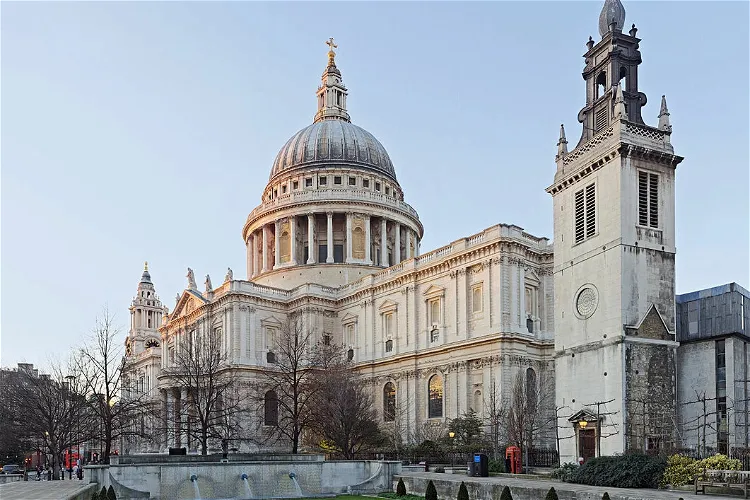
St Paul’s Cathedral
LondonSt Paul's Cathedral, situated on Ludgate Hill in the City of London, serves as the seat of the Anglican Bishop of London. This iconic structure has a rich history and is a significant landmark in the city. Visitors can appreciate the architectural grandeur of the cathedral and learn about its historical significance.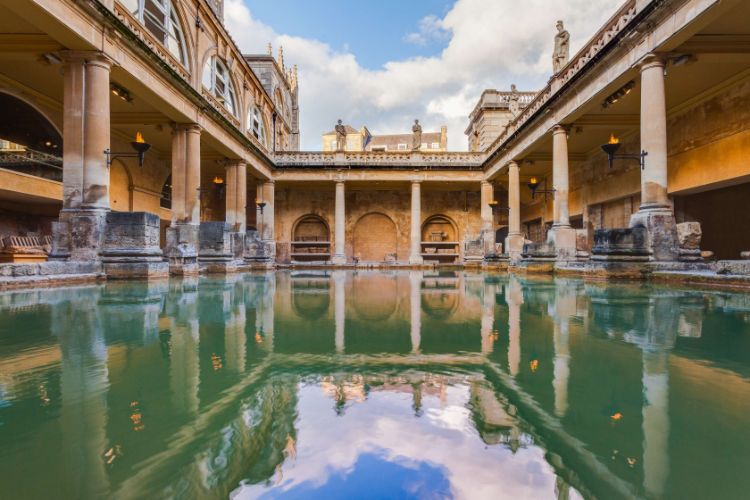
The Roman Baths
BathThe Roman Baths complex, located in the English city of Bath, is a historical site that offers a unique glimpse into the past. This well-preserved Roman public bathing site is situated below the level of the modern street and features four main points of interest: the Sacred Spring, the Roman Temple, the Roman Baths, and a museum housing artifacts discovered during excavations. The buildings at street level date back to the 19th century, adding another layer of historical interest to the site.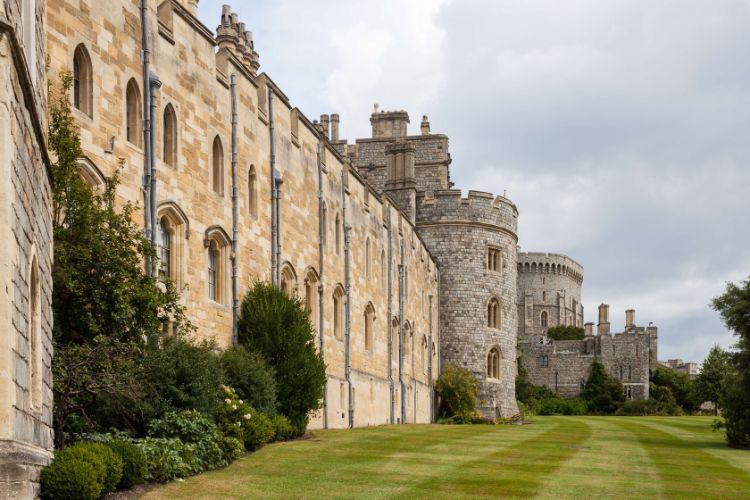
Windsor Castle
WindsorWindsor Castle, located in the town of Windsor in Berkshire County, is a royal castle with a rich history. It is renowned for its long-standing association with the English and later British royal family, as well as its impressive architecture. This castle has been a significant part of British history and culture, making it a fascinating destination for tourists interested in history, architecture, and the royal family.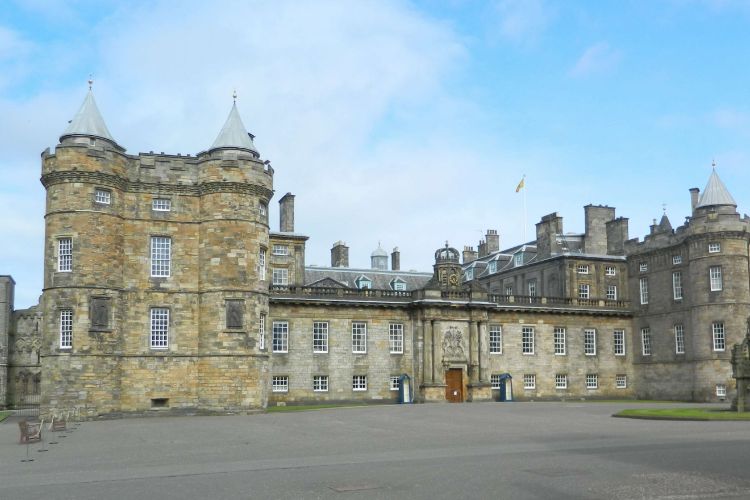
The Palace of Holyroodhouse
EdinburghThe Palace of Holyroodhouse, colloquially known as Holyrood Palace, has a rich history dating back to 1128 when it was founded as a monastery by David I of Scotland. Since the 16th century, it has served as the primary residence of the Scottish monarchs, with its last inhabitant being Queen Mary Stuart. This historical significance makes it a fascinating destination for those interested in Scottish history and royal residences.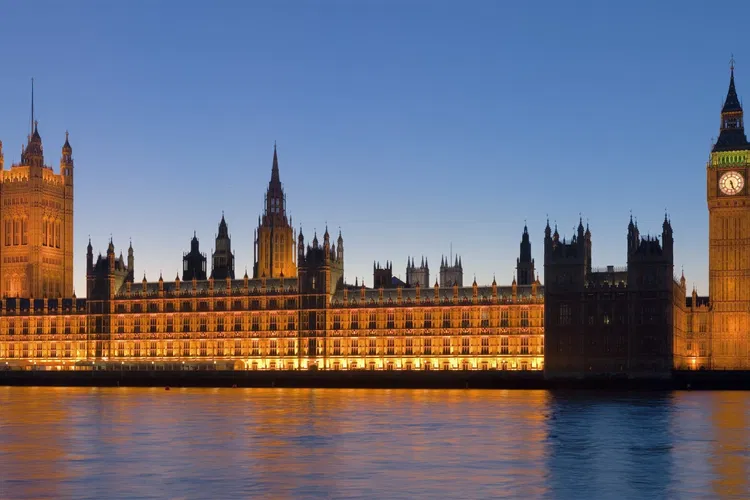
The Palace of Westminster - Houses of Parliament
LondonThe Palace of Westminster, also known as the Houses of Parliament, is a significant landmark located on the banks of the Thames in the London district of Westminster. This historic building serves as the seat of the British Parliament, making it a central hub of political activity in the United Kingdom. Its location offers visitors a picturesque view of the Thames, adding to the overall appeal of the site.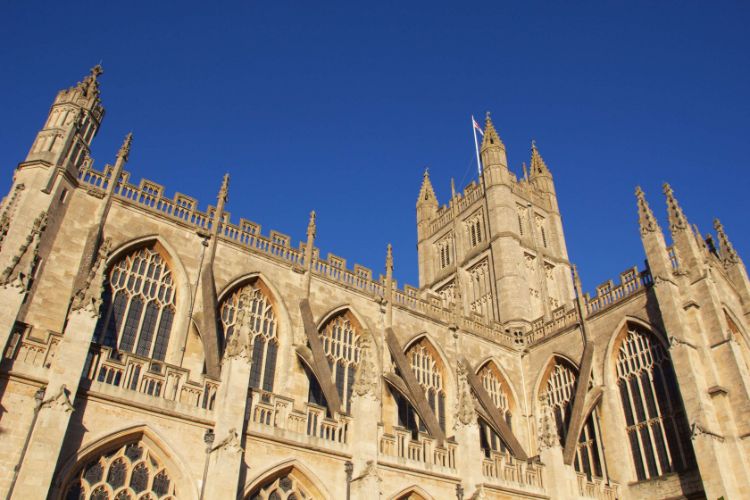
Bath Abbey
BathBath Abbey, also known as the Abbey Church of Peter & Paul, is an Anglican parish church located in Bath, Somerset, England. It was formerly a Benedictine monastery and was founded in the 7th century. The church underwent reorganization in the 10th century and was rebuilt in the 12th and 16th centuries. It is one of the largest examples of Perpendicular Gothic architecture in the West Country.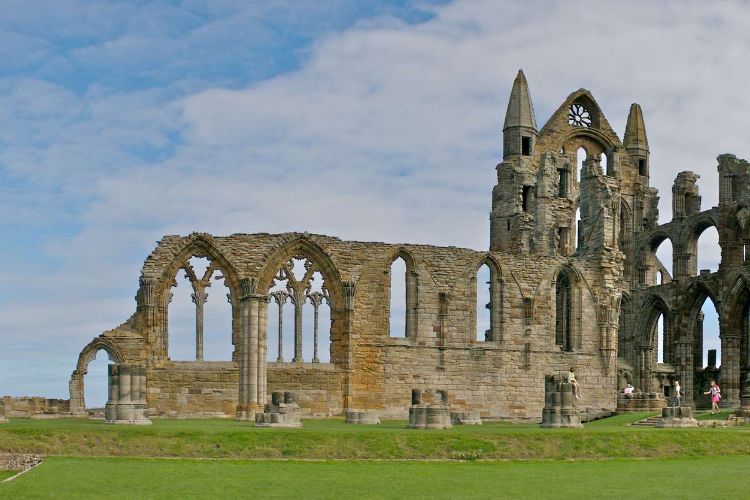
Whitby Abbey
WhitbyCholmley House, also known as Whitby Hall, is a historic banqueting house located adjacent to the ruins of Whitby Abbey in North Yorkshire, England. This significant structure was built in 1672 by Sir Hugh Cholmeley, a member of a family that had acquired the Abbey ruins and the surrounding land after its dissolution in 1539. The Cholmeley family resided in what had been the Abbey's gatehouse and guest lodgings until the construction of the house.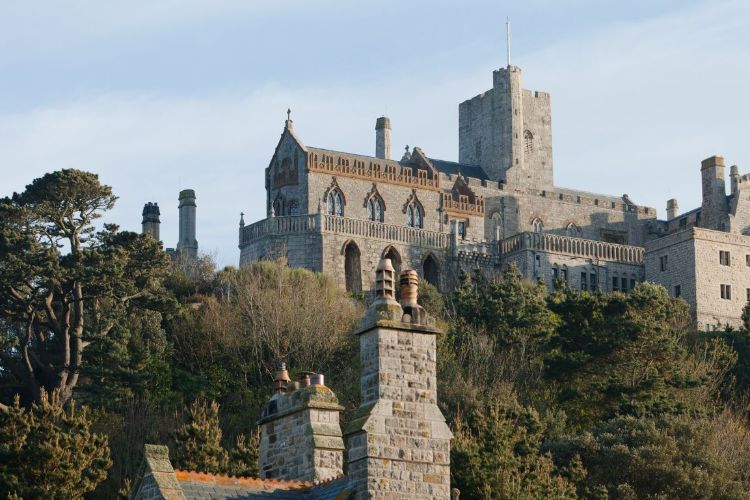
St Michael's Mount
MarazionSt Michael's Mount is a unique destination for tourists, offering a blend of natural beauty and historical significance. This pyramid-shaped granite island is located in Mount's Bay in Cornwall, approximately a kilometer from the town of Penzance, in the southwest of Great Britain. The island is accessible at low tide, providing a unique experience for visitors.
Fountains Abbey
RiponFountains Abbey, located in North Yorkshire, England, is a historical site that dates back to 1132. It was originally a Cistercian monastery, but now stands as a monument in ruins. Despite its current state, the abbey still holds significant historical value and offers a glimpse into the past.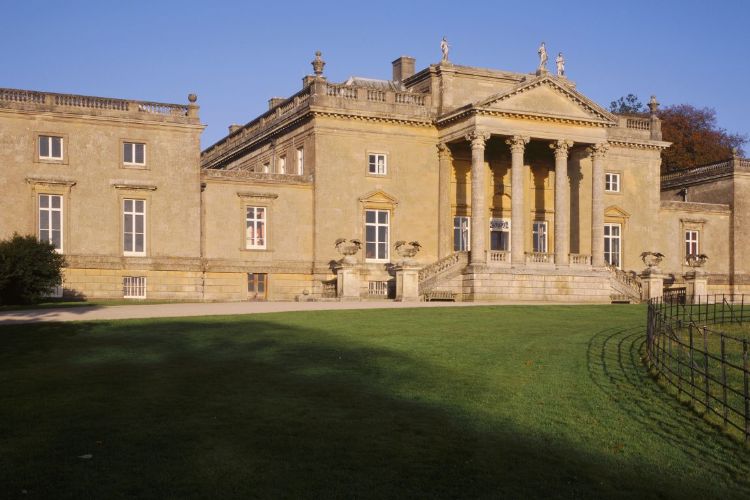
Stourhead
WarminsterStourhead House is a sprawling 1.06 hectare estate located near the source of the Stour River, in Wiltshire County, England. The estate is home to a Palladian-style mansion, the quaint village of Stourton, beautifully manicured gardens, expansive farmland, and a lush forest. This diverse range of attractions offers visitors a unique opportunity to explore and appreciate the rich history and natural beauty of the area.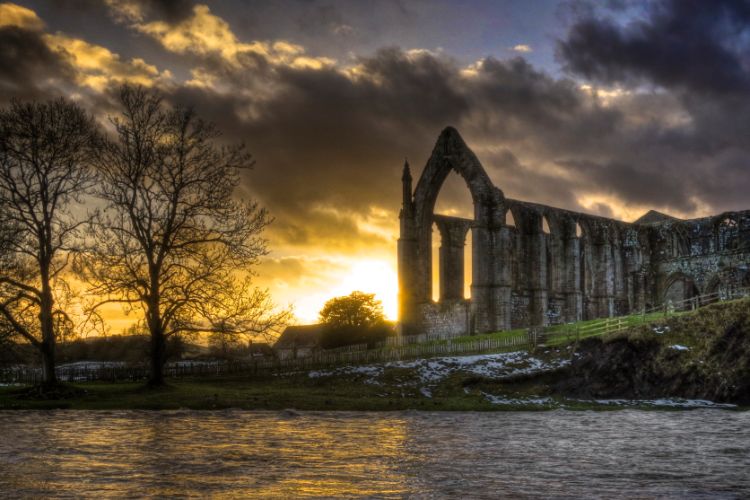
Bolton Abbey
Bolton AbbeyBolton Abbey is in the heart of the Yorkshire Dales on the banks of the River Wharfe. With just under 30,000 acres of beautiful countryside, over 80 miles of footpaths and ample space to run around and enjoy the fresh air, there is something for all ages. Explore the ruins of the Priory and discover
St Andrews Cathedral And St Rule's Tower
Saint AndrewsSt Andrews Cathedral has a rich history that dates back to the year 742. It was during this time that the relics of the apostle Saint Andrew, who is now the patron saint of Scotland, arrived in the area. This event marked the beginning of the cathedral's existence and its significance in Scottish history.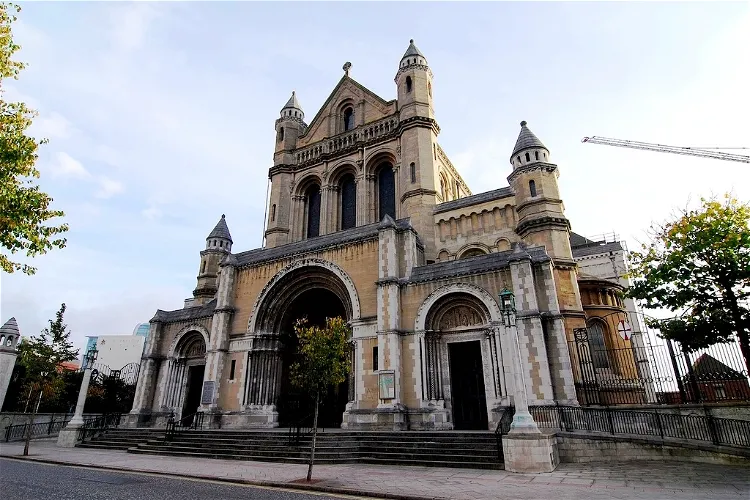
Belfast Cathedral
BelfastSt. Anne's Cathedral, also known as Belfast Cathedral, is a significant religious site located in Donegall St., Belfast, Antrim, in Northern Ireland. This cathedral is unique in serving two separate dioceses: Connor and Down and Dromore. Despite not being the seat of either, it is situated within the first diocese. The cathedral is a notable landmark in Belfast and a place of worship for the Church of Ireland.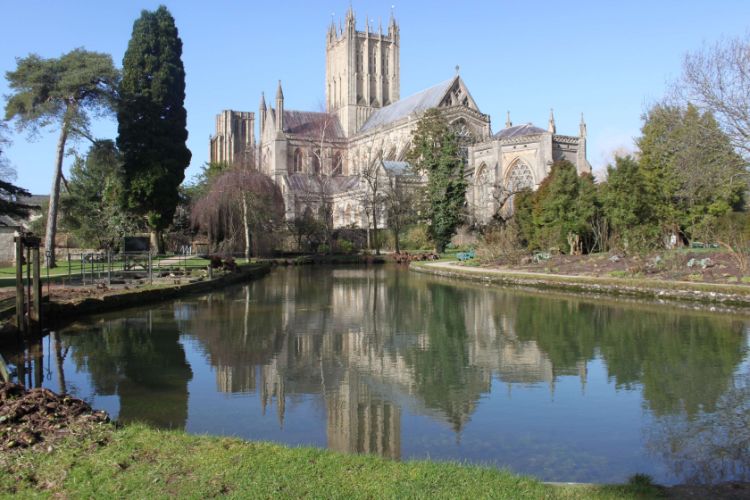
The Bishop's Palace
WellsThe Wells and Mendip Museum is conveniently located next to Wells Cathedral, making it an easy addition to a day of sightseeing. The museum itself is housed in the former Chancellors' House, a building with origins dating back to the 15th century. However, most of the current structure of the building is from the 17th and 18th centuries, adding a historical charm to your visit.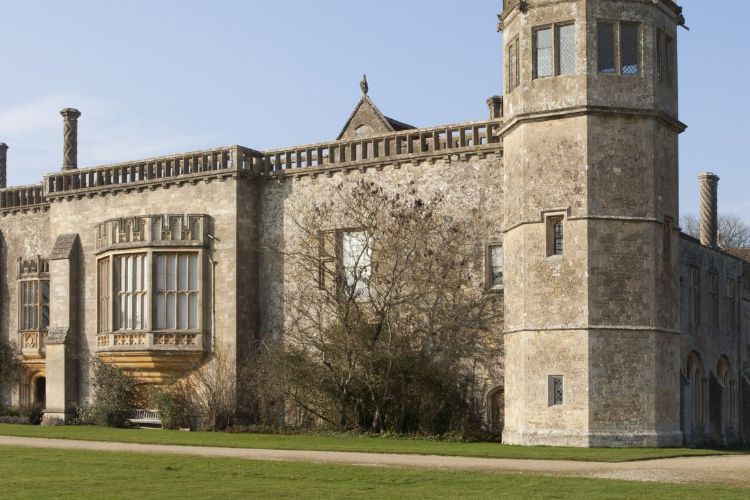
Lacock Abbey
LacockLacock Abbey is a house with over 800 years of history. Founded as an abbey in 1232, it has been a home to many different characters, each of whom has put their own unique stamp on the building.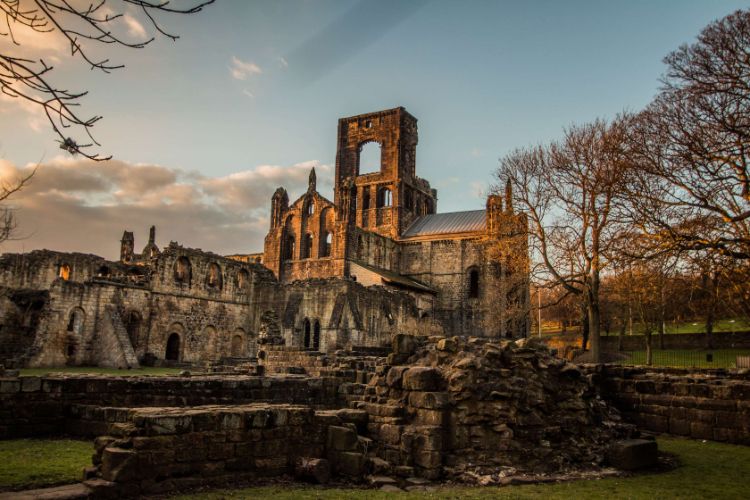
Kirkstall Abbey
LeedsKirkstall Abbey, located on the outskirts of Leeds in Yorkshire county, is a historical site that offers a glimpse into the past. The ruins of this ancient Cistercian monastery are situated in a public park on the north bank of the River Aire. This location not only provides a serene setting for the ruins but also offers visitors a chance to enjoy the natural beauty of the area.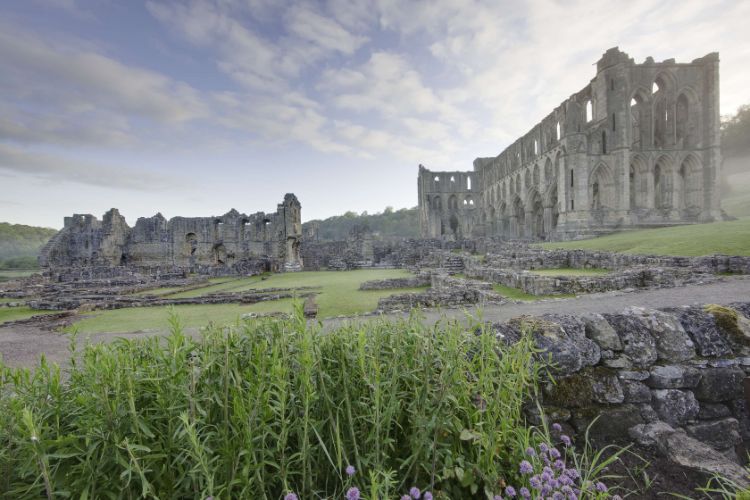
Rievaulx Abbey
HelmsleyRievaulx Abbey is a museum in Helmsley. The museum features exhibits related to: decorative and applied art.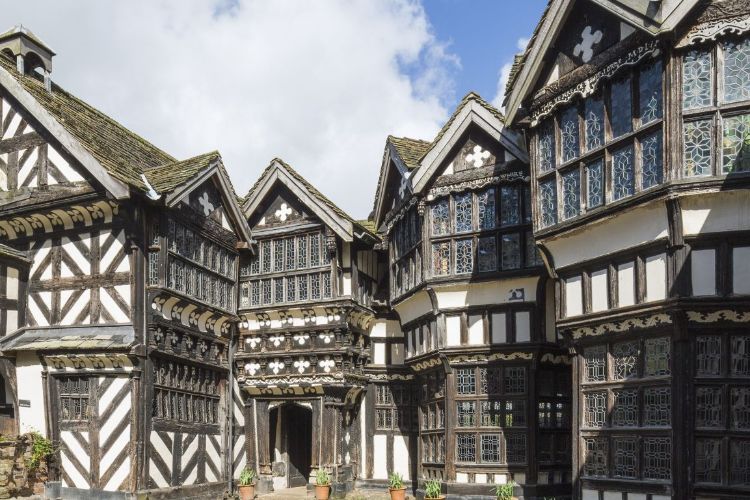
Little Moreton Hall
CongletonLittle Moreton Hall is a historic manor house situated 6.4 km southwest of Congleton, Cheshire, England. This timber-framed house was constructed in the 16th and 17th centuries and is surrounded by a moat, adding to its historic charm. It's a Grade I listed building and is considered one of the best-preserved timber-framed manor houses in the United Kingdom.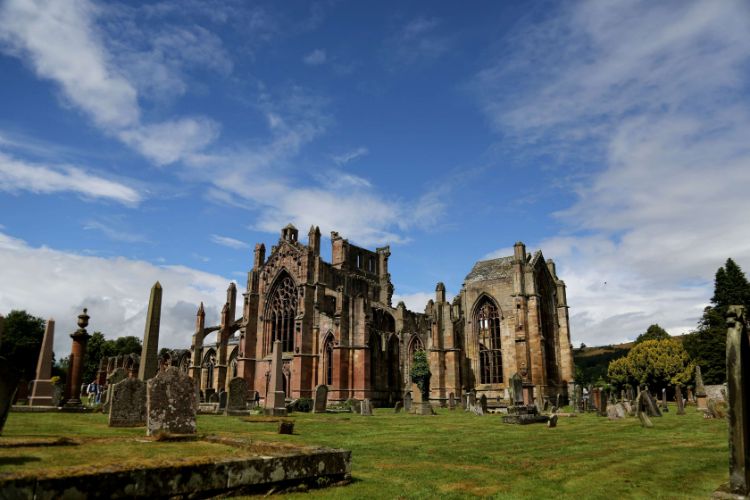
Melrose Abbey
MelroseMelrose Abbey, a historical site in Melrose, Scotland, was established in 1136. The Cistercian monks from Clairvaux Abbey in France founded it at the request of King David I, who was the King of Scotland at the time. This historical context adds to the rich tapestry of the Abbey's past, making it a fascinating site for visitors interested in history and architecture.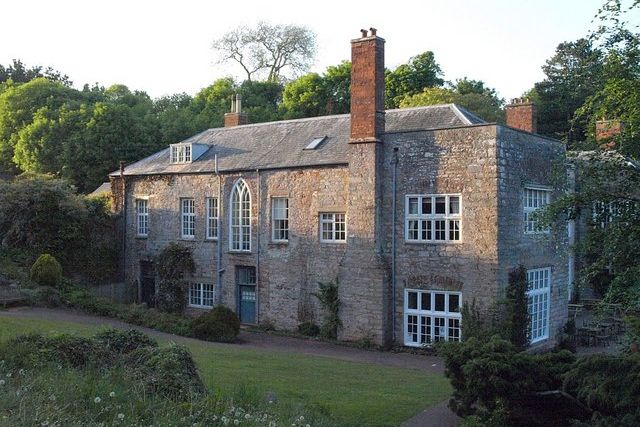
Cockington Court
TorquayJust a mile from Torquay seafront, historic Cockington Court is nestled within 460 acres of country park and is home to a growing number of skilled craftsmen – watch them as they work and perhaps indulge in a spot of retail therapy in their studios. Thanks to new funding, additional craft studios an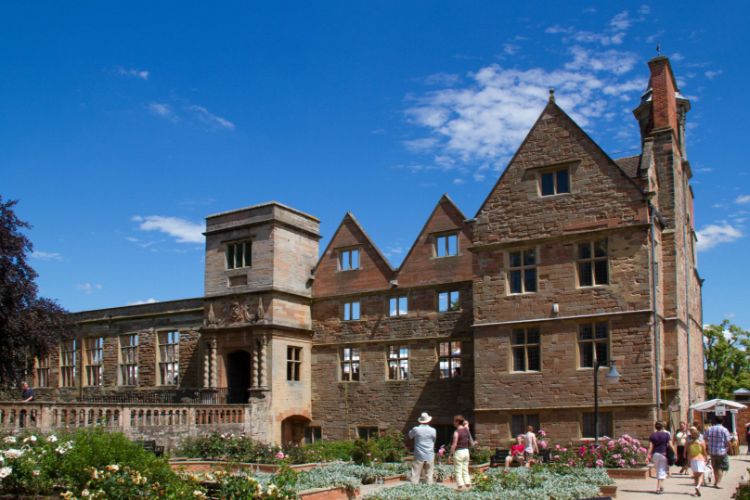
Rufford Abbey and Country Park
OllertonRufford Abbey and Country Park is a museum in Ollerton. The museum features exhibits related to Architecture, Decorative and Applied Art and Religion.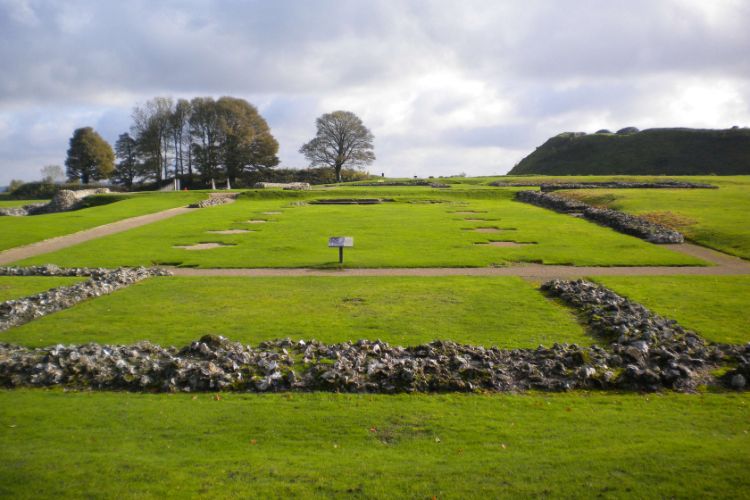
Old Sarum
SalisburyThe great earthwork of Old Sarum stands near Salisbury on the edge of Wiltshire's chalk plains. Its ramparts were raised in about 500 BC by Iron Age peoples, and later occupied by the Romans, the Saxons and, most importantly, the Normans. Today, the remains of the prehistoric fortress and of the Nor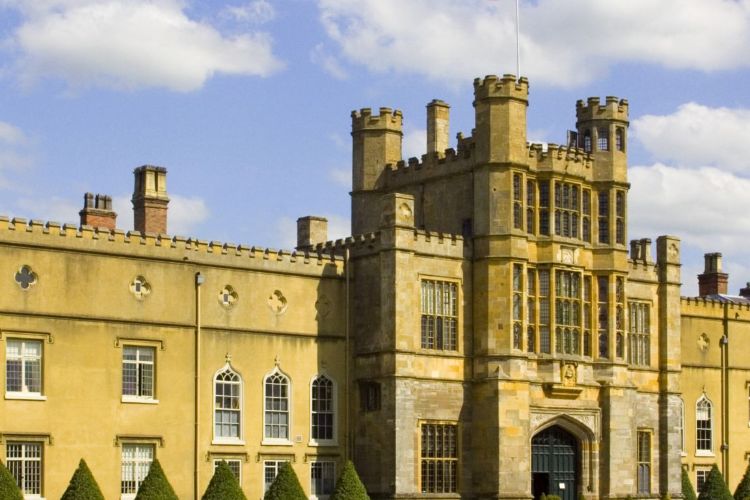
Coughton Court
AlcesterCoughton Court is a Grade I listed English Tudor country house located on the main road between Studley and Alcester in Warwickshire. This historic building is a significant part of England's architectural heritage and offers a glimpse into the country's past.
Torre Abbey Historic House and Gardens
TorquayTorre Abbey, located in Torquay, Devon, is a historic building that serves as an art gallery. It was originally established in 1196 as a monastery for Premonstratensian canons. This rich history adds a unique charm to the Abbey, making it a fascinating destination for tourists interested in history and art.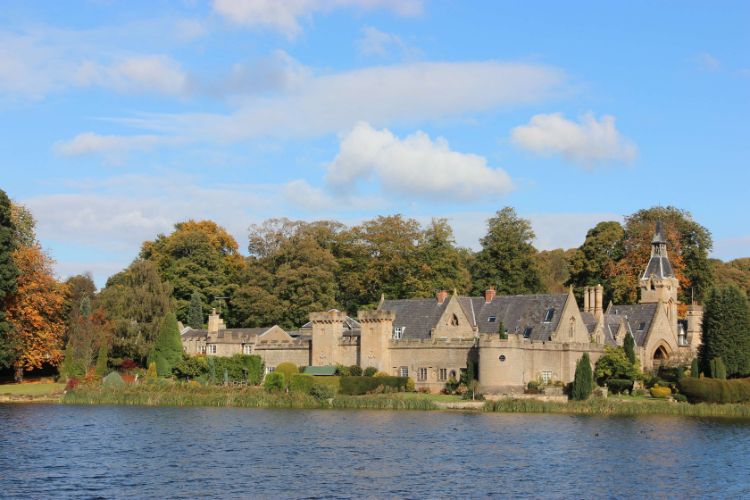
Newstead Abbey
NottinghamNewstead Abbey, located near Nottingham, is a historical site with a rich past. Originally, it was an Augustinian priory, a place of worship and solitude for monks. However, it gained fame as the family home of the renowned poet, Lord Byron. This connection to a significant literary figure adds a layer of cultural and historical significance to the site, making it an interesting destination for those interested in history, literature, and architecture.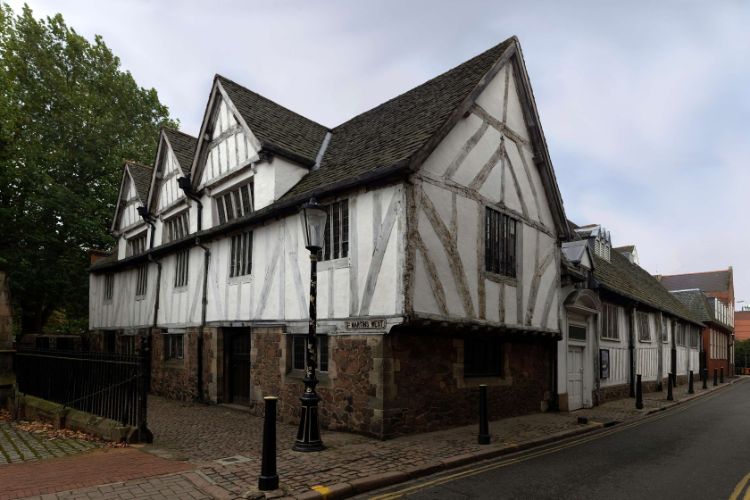
The Guildhall
LeicesterThe Guildhall in Leicester, England, is a historical building with a rich past. Its timber-framed structure dates back to around 1390, making it one of the oldest buildings in the city. This architectural gem once served as the town hall for Leicester until 1876. Today, it stands as a testament to the city's medieval history, offering visitors a glimpse into the past.
Dunkeld Cathedral Chapter House Museum
DunkeldDunkeld Cathedral is a significant place of worship for the Church of Scotland. It is situated on the north bank of the River Tay in the town of Dunkeld, within the region of Perth and Kinross in Scotland. This location offers visitors a chance to experience a piece of Scotland's religious history while enjoying the scenic beauty of the surrounding area.
Tynemouth Priory and Castle
TynemouthTynemouth Priory and Castle was once a monastery and a burial place of kings and saints. Visitors can explore the ruins, find tranquillity in the tiny chapel, take in the coastal views and enjoy a picnic in the grounds.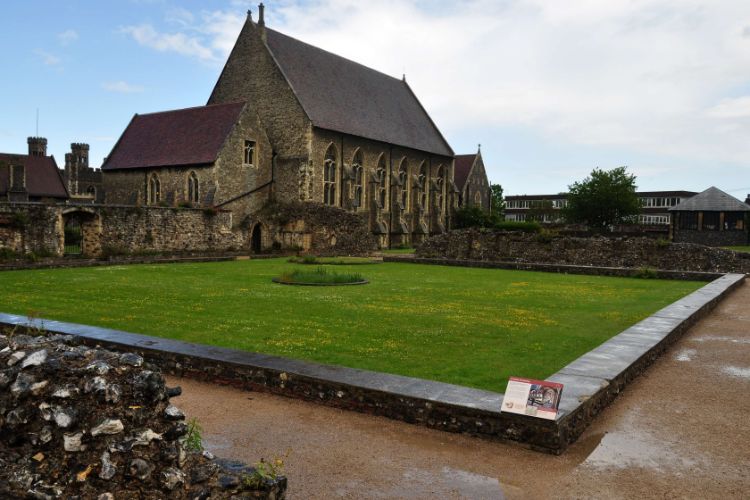
St Augustine's Abbey
CanterburySt Augustine's Abbey in Canterbury is a significant historical site, founded by Augustine of Canterbury around 598. This was done to celebrate the successful evangelization of southern England. The Abbey stands as a testament to the spread of Christianity in the region during this period.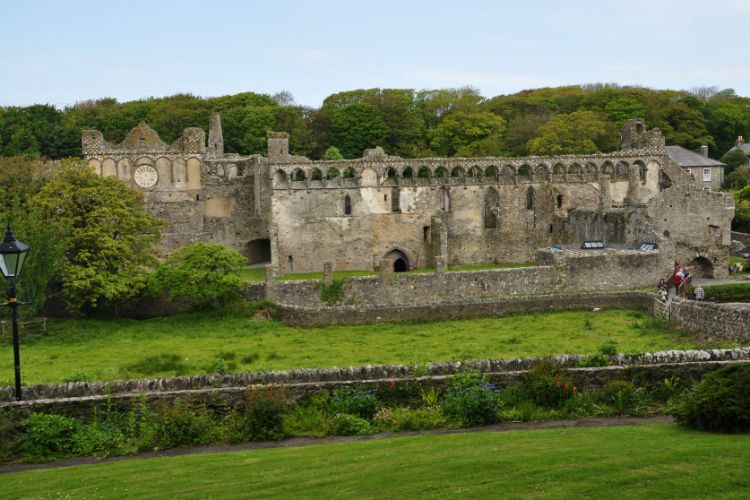
St David's Bishop's Palace
Saint DavidsHigh walls high cavred stone human heads and mystical beasts. Only the striking chequerboard stonework hints at what lies within what was once the fabulous palace of the medieval bishops of St Davids, built a stone's throw from the cathedral.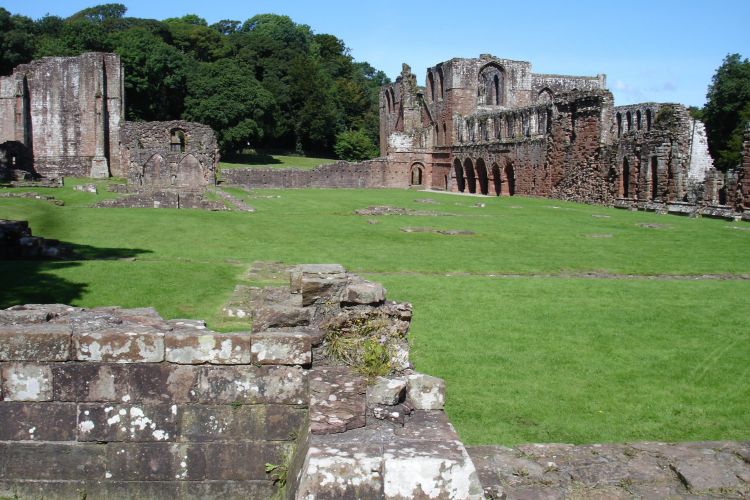
Furness Abbey
Barrow-in-FurnessFurness Abbey is a museum in Barrow-in-Furness. The museum features exhibits related to: archaeology.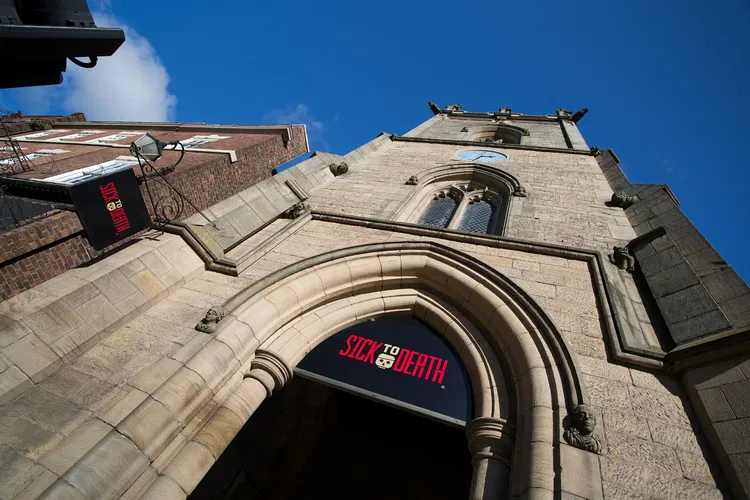
Sick To Death
ChesterSick to Death is a historical attraction situated in St Michaels Church, a disused church on the Bridge Street Rows in Chester, England. This unique location adds a layer of historical significance to the attraction, making it an interesting destination for tourists interested in history and architecture.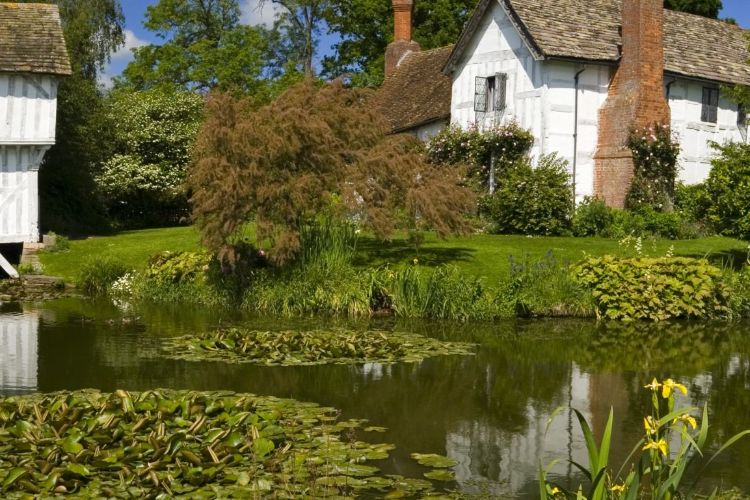
Brockhampton Estate
BringstyRomantic medieval moated manor house on Herefordshire / Worcestershire borders. 14th-century great hall with a locally-timbered roof. Crooked gatehouse and ruined Norman chapel. Miles of park and woodland to explore, with a variety of wildlife, from dormice to buzzards.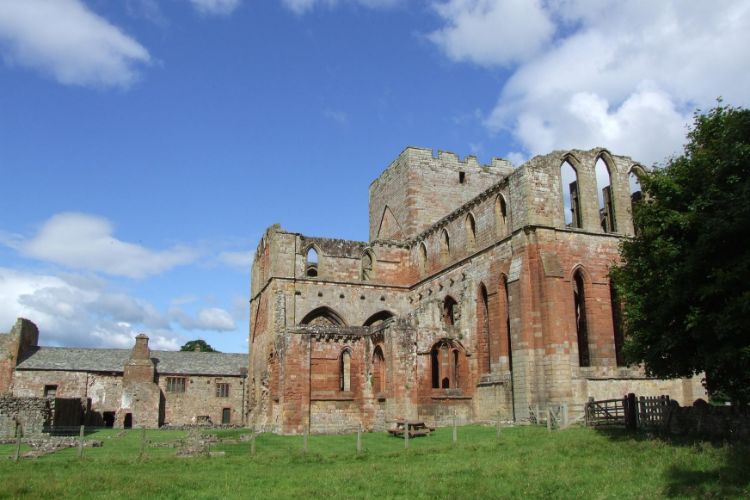
Lanercost Priory
LanercostStanding close to Hadrian's Wall, the Augustinian priory of Lanercost was much involved in the Anglo-Scottish wars. The abbey suffered terribly from Scottish raids, being sacked at least four times. It was finally dissolved by Henry VIII in 1537, but today its 13th-century church remains well-preser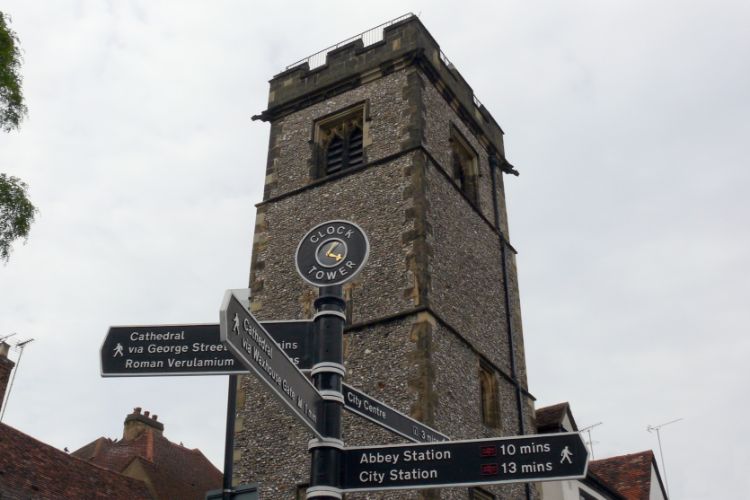
Clock Tower
Saint AlbansSt Albans Museums is a collection of museums and historic buildings in the city of St Albans, Hertfordshire, England. It is managed by the St Albans City and District Council. This collection includes the St Albans Museum + Gallery, the Verulamium Museum, the Hypocaust at Verulamium, St Albans' medieval Clock Tower, and the ruins of Sopwell Priory.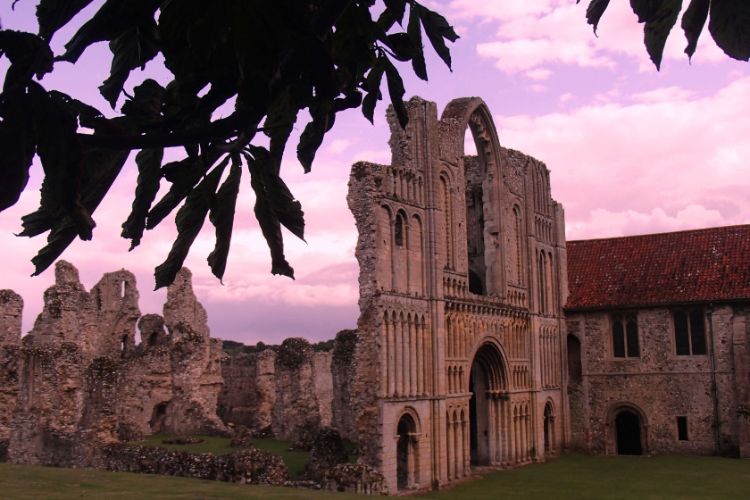
Castle Acre Priory
Castle AcreCastle Acre Priory, located in the village of Castle Acre in Norfolk, England, was a Cluniac priory dedicated to St Mary, St Peter, and St Paul. This historical site offers a glimpse into the religious practices and architectural styles of the past, making it a fascinating destination for those interested in history and architecture.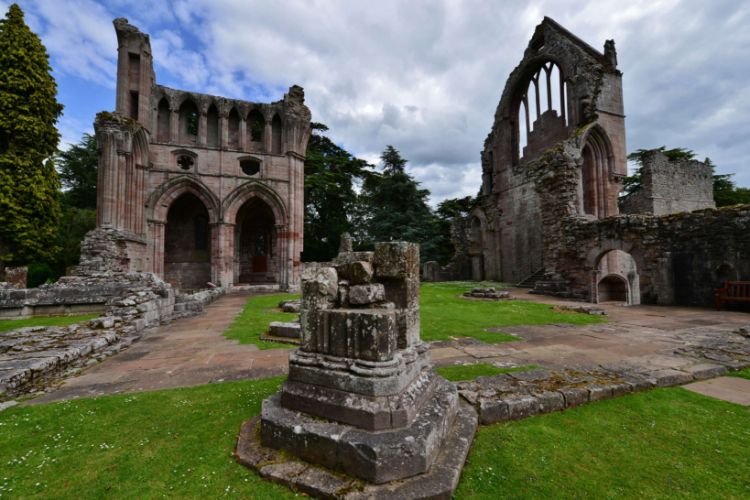
Dryburgh Abbey
Saint BoswellsDryburgh Abbey is a museum in near St Boswells. The museum features exhibits related to: architecture and religion.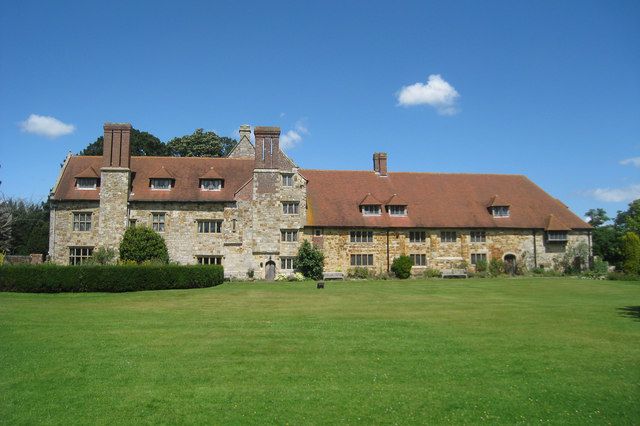
Michelham Priory
HailshamMichelham Priory is a historical site located near Upper Dicker, East Sussex in England. It was once an Augustinian priory and is now owned by the Sussex Archaeological Society. This site offers a glimpse into the past and is a significant part of the region's history.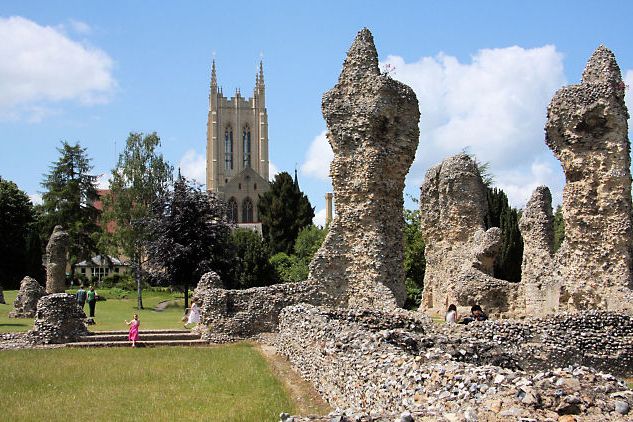
Bury St Edmunds Abbey
Bury Saint EdmundsThe site of the St Edmundsbury Cathedral has a rich history, with a church having been present there since at least 1065. This long-standing religious significance adds a depth of historical context to any visit, allowing tourists to appreciate the cathedral not just for its current form, but also for its historical roots.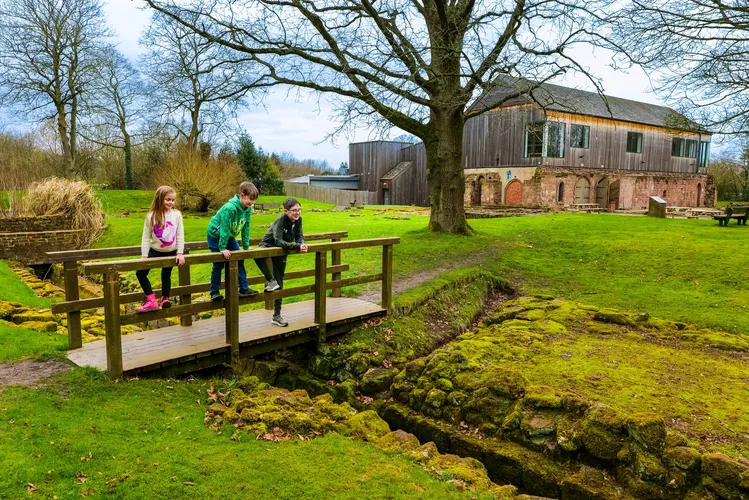
Norton Priory Museum & Gardens
RuncornNorton Priory is a significant historical site located in the town of Runcorn, in Cheshire, United Kingdom. The site is home to the ruins of a 12th-century abbey and an 18th-century manor house, which now functions as a museum. Visitors can explore the rich history of the site, from its origins as a religious institution to its transformation into a grand manor house.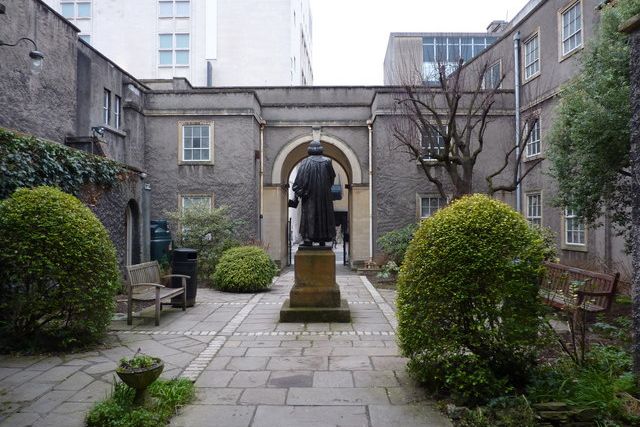
New Room - John Wesley's Chapel
BristolJohn Wesley's New Room, located in Broadmead, Bristol, England, is a historic building with a rich history. It was first opened in June 1739 and later enlarged in 1748. This building is significant as it housed the earliest Methodist societies.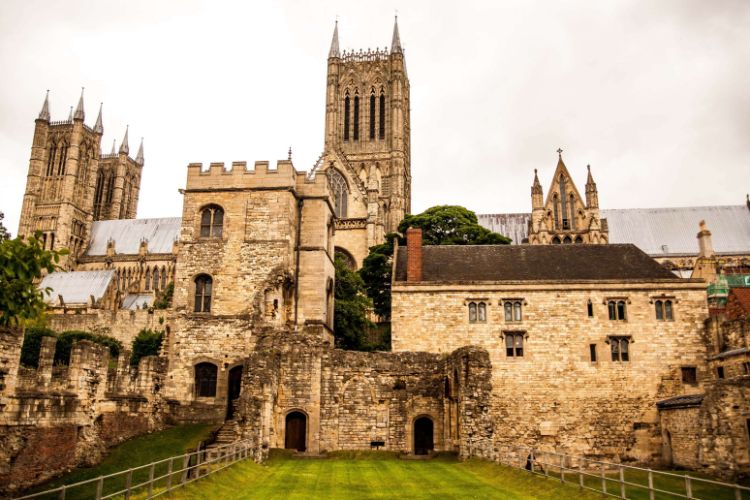
Lincoln Medieval Bishops' Palace
LincolnBuilt in the late 12th century, Lincoln Medieval Bishops' Palace was one of the most important buildings in England. Its architecture and scale reflect the enormous wealth and power of the medieval bishops as princes of the church.- 43
Holyrood Abbey
EdinburghHolyrood Abbey is a museum in Edinburgh. The museum features exhibits related to: archaeology, architecture and social history. 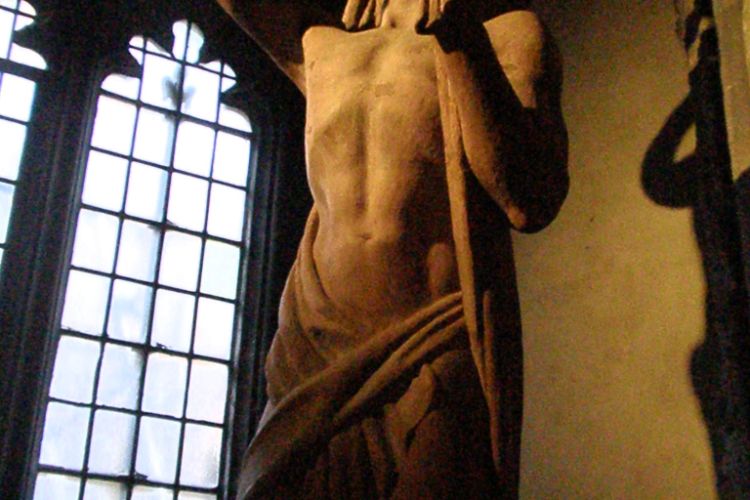
Priory Church of St Bartholomew the Great
LondonThe ancient Priory Church of St Bartholomew the Great was founded by a courtier of Henry I (son of William the Conqueror). It is a good example of Norman architecture which has survived the numerous transformations and upheavals London has undergone over the past 900 years, including the Great Fire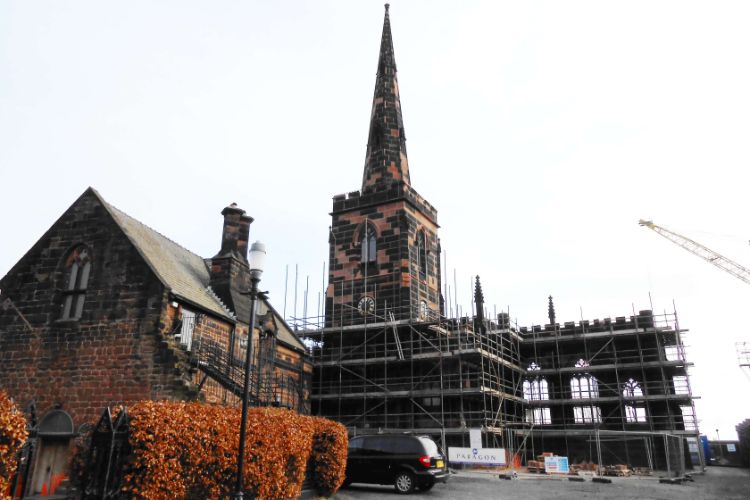
Birkenhead Priory and St Mary's Tower
BirkenheadBirkenhead Priory, located in Priory Street, Birkenhead, England, holds the distinction of being the oldest standing building on Merseyside. This historical site offers a unique glimpse into the region's past, with its medieval remains, the priory chapter house, and the remnants of St Mary's church. As a testament to its historical significance, all three are recorded in the National Heritage List for England.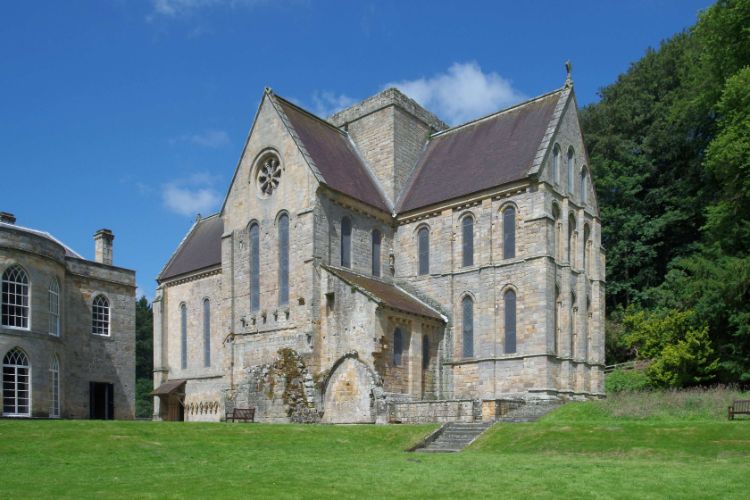
Byland Abbey
Byland AbbeyByland Abbey is a museum in Helmsley. The museum features exhibits related to: religion and archaeology.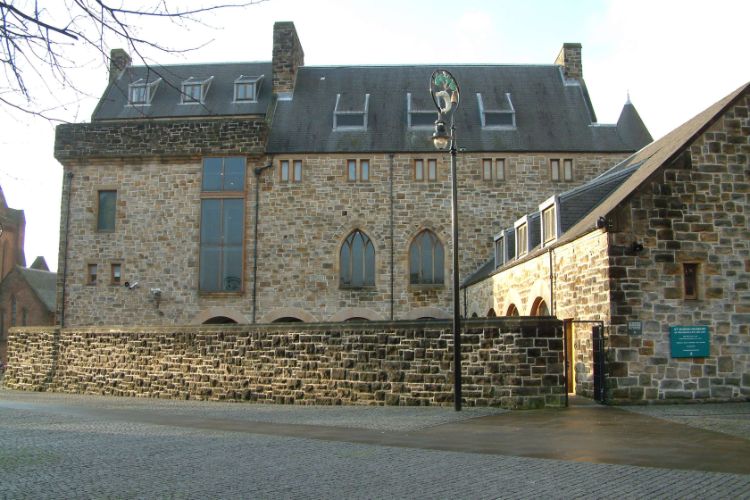
St. Mungo Museum of Religious Life and Art
GlasgowAs the oldest surviving residential building in Glasgow, Provand’s Lordship now serves as a museum. It houses a collection of 17th-century furniture and royal portraits, providing a unique insight into the city's history. The museum is open to the public and admission is free, making it an accessible destination for all visitors.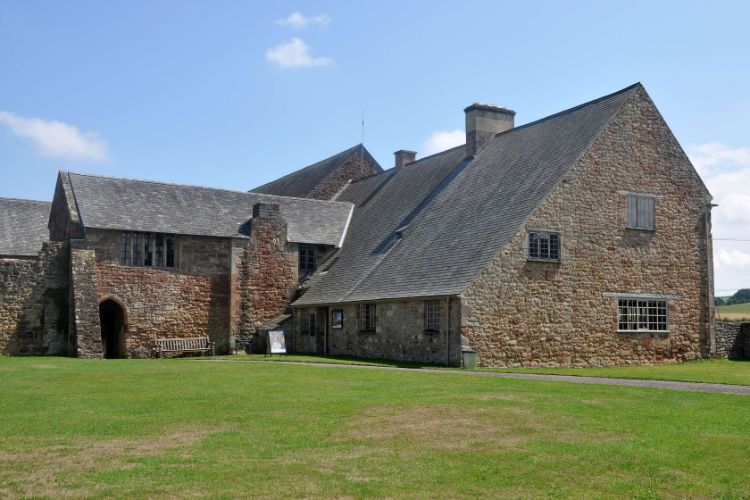
Cleeve Abbey
WashfordCleeve Abbey, also known as Abbatia Vallis Florida, is a former Cistercian abbey located about 3 km southwest of Watchet near Washford in Somerset, close to the A39 from Bridgwater to Barnstaple. This historical site was founded between 1186 and 1191 by William de Roumare, whose grandfather had previously established Revesby Abbey in Lincolnshire in 1142. The abbey is known for its rich history and architectural beauty.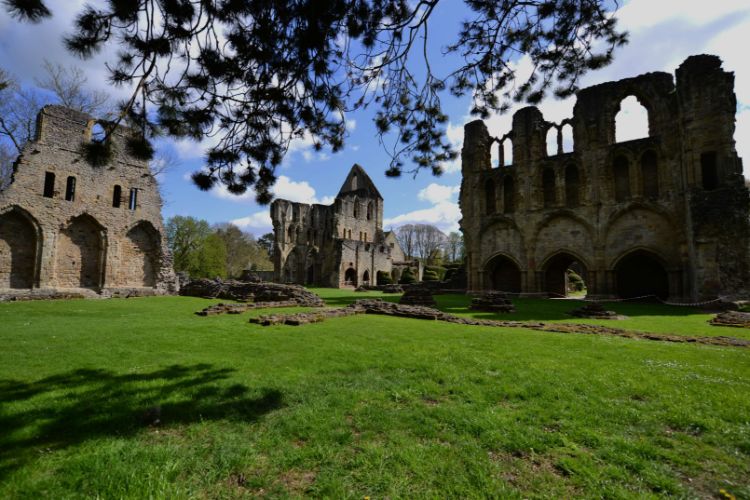
Wenlock Priory
Much WenlockPicturesque ruins of a large priory of Cluniac monks, whose love of decoration is reflected in the glorious carving of its 12th-century chapter house and rare 'lavabo' - a tiered washing fountain in a topiary bedecked cloister garden. Parts of the great church also stand, against the backdrop of the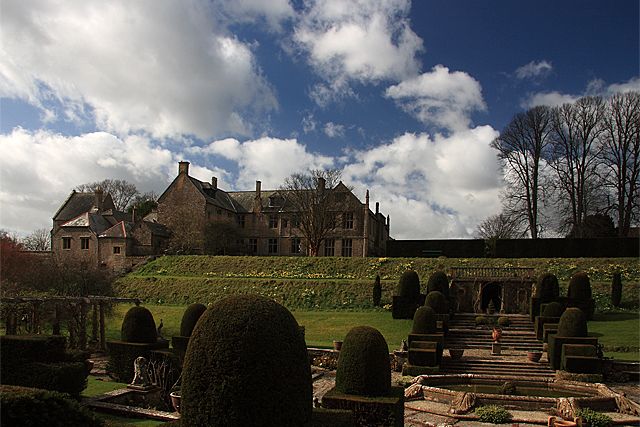
Mapperton Gardens
BeaminsterOne of the main attractions of Mapperton is its manor house and gardens, which are open to the public during the summer months. The house, along with the attached All Saints' Church, are both Grade I listed, indicating their historical and architectural significance. Visitors can explore the manor house and its beautiful gardens, immersing themselves in the rich history and stunning architecture of the place.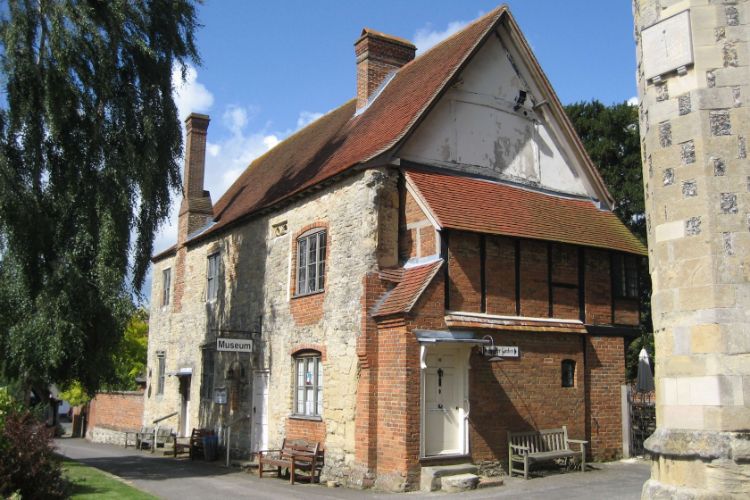
Dorchester Abbey Museum
WallingfordThe Dorchester Abbey Museum is a local museum located in the town of Dorchester, Oxfordshire, England. It is conveniently attached to the historic Dorchester Abbey, making it an ideal destination for those interested in exploring the rich history of the area.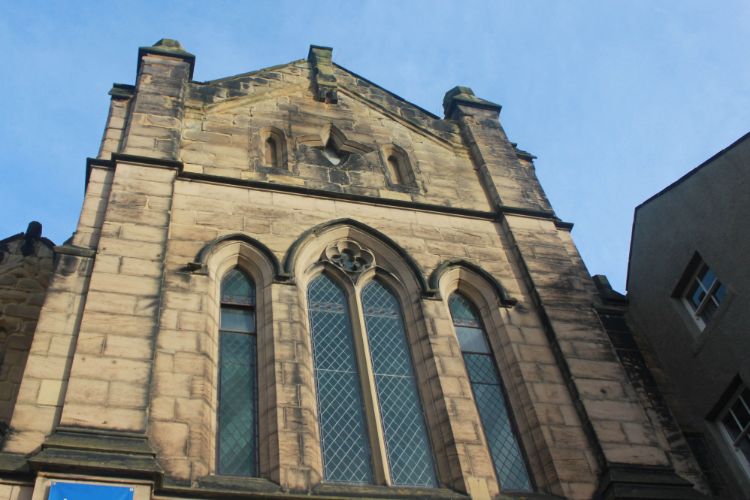
Bailiffgate Museum and Gallery
AlnwickThe Bailiffgate Museum, located in Alnwick, Northumberland, England, is a small independent institution dedicated to preserving and showcasing the history of Alnwick and North Northumberland. This museum provides a unique opportunity for visitors to delve into the rich heritage of the region.
Museum of the Order of St John
LondonThe Museum of the Order of St John tells the story of the ancient religious military Order, from its origins as a pan-European Order of Hospitaller Knights caring for sick pilgrims in 11th century Jerusalem, through to its modern-day role with St John Ambulance, the international first aid charity.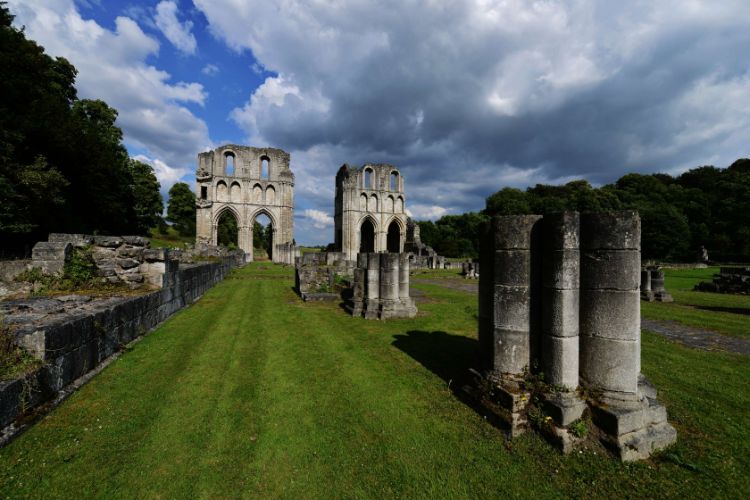
Roche Abbey
MaltbySet in a valley landscaped by 'Capability' Brown in the 18th century, the most striking feature of this Cistercian abbey is the end of its church, built in the new Gothic style around 1170. It has one of the most complete ground plans of any English Cistercian monastery, laid out as excavated founda
St John the Baptist's Church
ChesterSt John the Baptist's Church, located outside Chester's city walls on a cliff above the north bank of the River Dee, is a significant historical site. It was the former cathedral of Chester during the Early Middle Ages, having been founded in the late 7th Century by the Anglo Saxons. This makes it a place of great historical interest for tourists.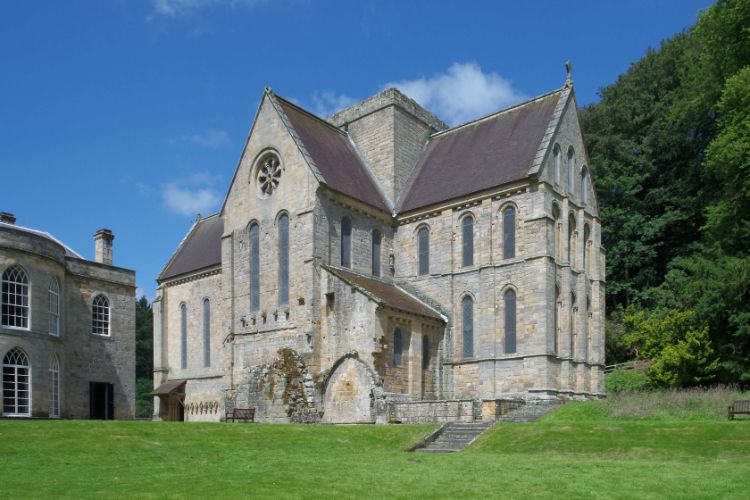
Brinkburn Priory
LongframlingtonThe 12th century church of the Augustinian priory of Brinkburn survives completely roofed and restored. It is set by a bend in the River Coquet. Parts of the monastic buildings are incorporated into the adjacent manor house.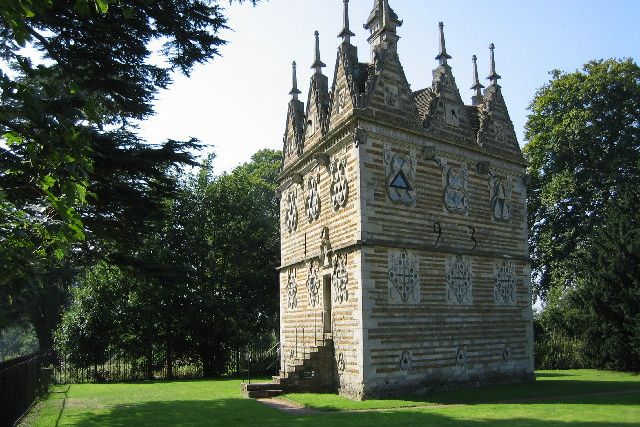
Rushton Triangular Lodge
RushtonThis triangular building was designed by Sir Thomas Tresham (father of one of the Gunpowder Plotters) and constructed between 1593 and 1597. It is a testament to Tresham's Roman Catholicism: the number three, symbolising the Holy Trinity, is apparent everywhere. There are three floors, trefoil windo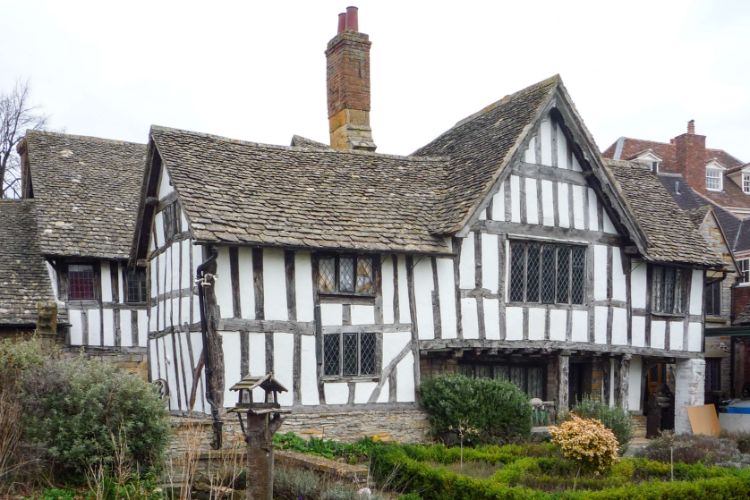
The Almonry Museum and Tourist Information Centre
EveshamThe Almonry Museum and Tourist Information Centre is a significant historical site located in the charming town of Evesham in Worcestershire, England. The museum is under the governance of the Evesham Town Council. It offers a unique opportunity for visitors to delve into the rich history of the town and the Vale of Evesham.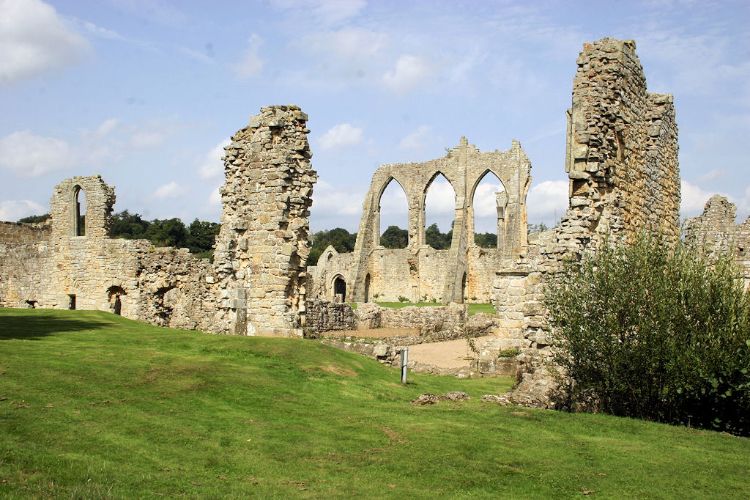
Bayham Old Abbey
LamberhurstThe ruins of 13th Century Bayham Old Abbey.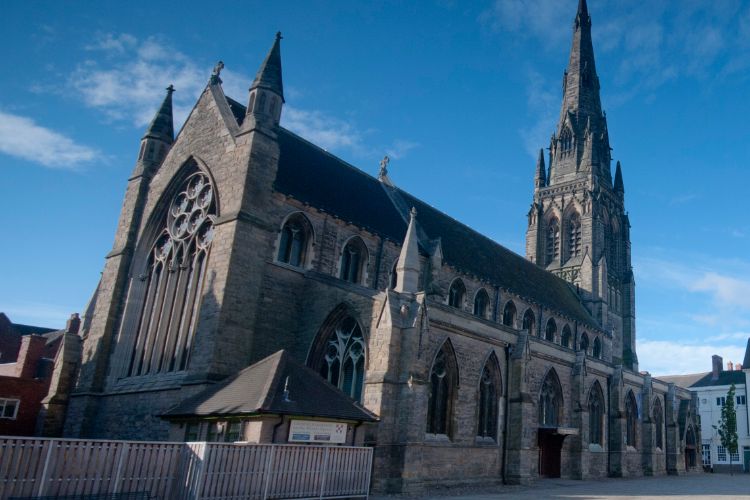
St Mary's Lichfield
LichfieldThe Lichfield Museum is situated on the second floor of St Mary's Church, located on the south side of the market square in the heart of Lichfield, Staffordshire, United Kingdom. Its central location makes it easily accessible for visitors.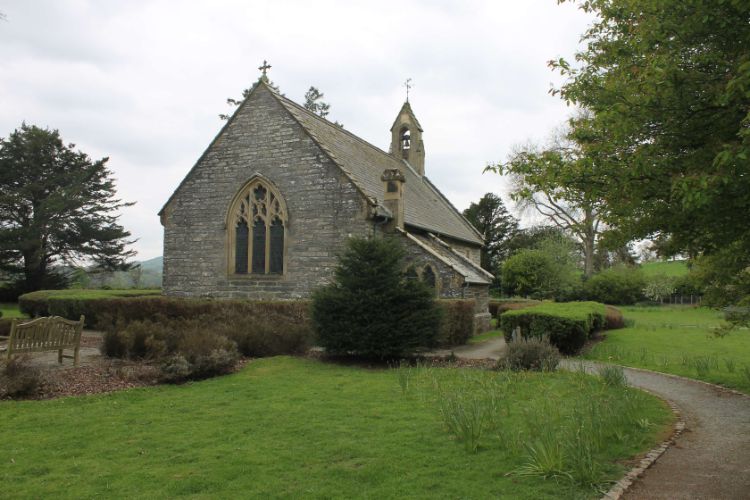
Rug Chapel
CorwenThese two tiny religioius sites together make a big impression. Built in 1637, Rug is a perfect example of a little-altered period chapel. Llanger Church is older, dating back to 1291 and was originaly called Llann-Garw_gwyn, meaning church of the white deer.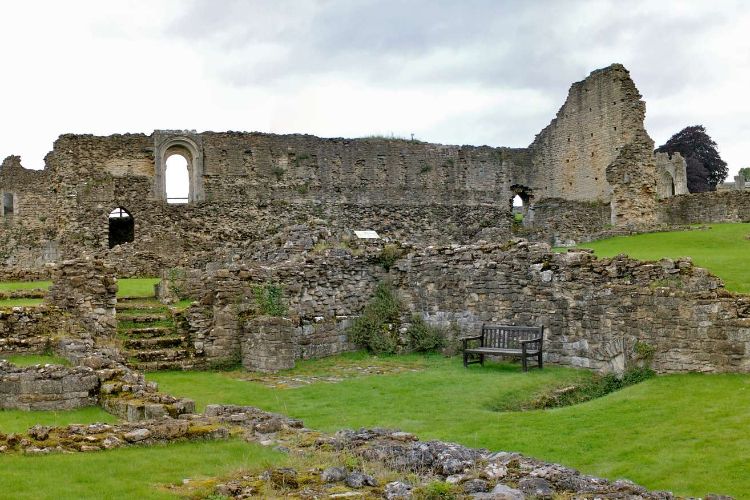
Kirkham Priory
MaltonThese ruins of an Augustinian priory include an elaborate gatehouse and monk's washroom, all set in the Derwent valley, an area of natural beauty in the Yorkshire Wolds. Kirkham Priory features exhibits related to: religion, architecture, personalities and weapons and war. Key themes, people and exh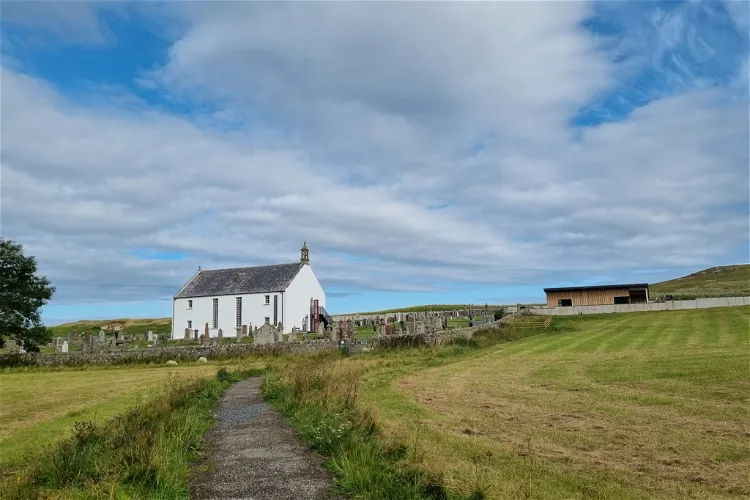
Strathnaver Museum
BettyhillStrathnaver Museum, situated in Bettyhill, Sutherland, Scotland, is a volunteer-run independent museum that first opened its doors to the public in 1976. It offers a deep dive into the history of north west Sutherland, particularly focusing on the Highland Clearances.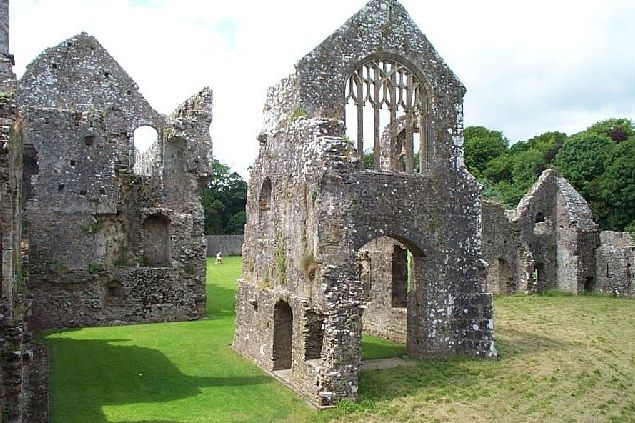
Lamphy Bishop's Palace
LampheyNow, as in the past, this is a place to seek solice from the stresses of everyday life. The medieval bishops of St Davids chose just the right place for a lavish sanctuary. The exqusiit palace reflects their wealth, status and power.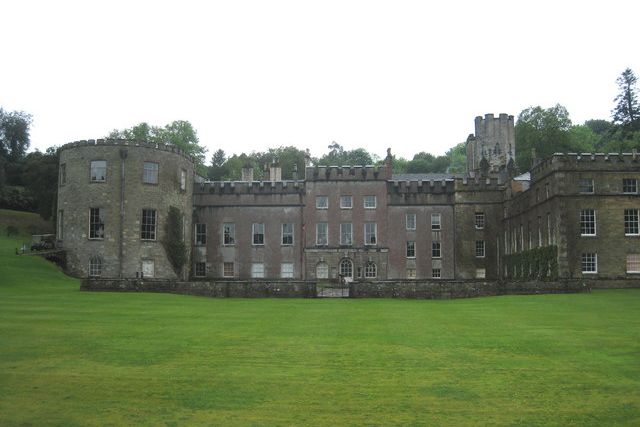
Port Eliot
Saint GermansPort Eliot, located in the parish of St Germans, Cornwall, England, is the ancestral home of the Eliot family. This historic estate includes a stately home and its own church, which serves as the parish church of St Germans. The house is part of a 6,000-acre estate that extends into the neighboring villages of Tideford, Trerulefoot, and Polbathic. Both the house and garden are Grade I listed, indicating their historical and architectural significance.
Tabley House
KnutsfordTabley House is a Grade I listed English country house located in Tabley Inferior Nether Tabley, approximately 3 kilometres west of the town of Knutsford, Cheshire. The house was constructed between 1761 and 1769 for Sir Peter Byrne Leicester and was designed by the renowned architect, John Carr. The house's design and historical significance make it a notable point of interest for visitors to the area.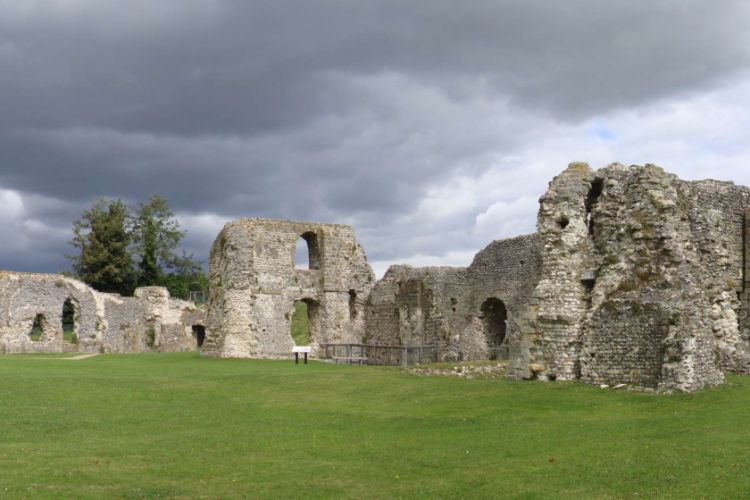
Lewes Priory of St Pancras
LewesFounded in the 11th century by the Norman nobleman William de Warenne and his wife Gundrada, the Priory of St Pancras was the largest monastic establishment of its day. It was demolished at the Dissolution but is still one of the most important heritage sites in Sussex. Walk in the footsteps of me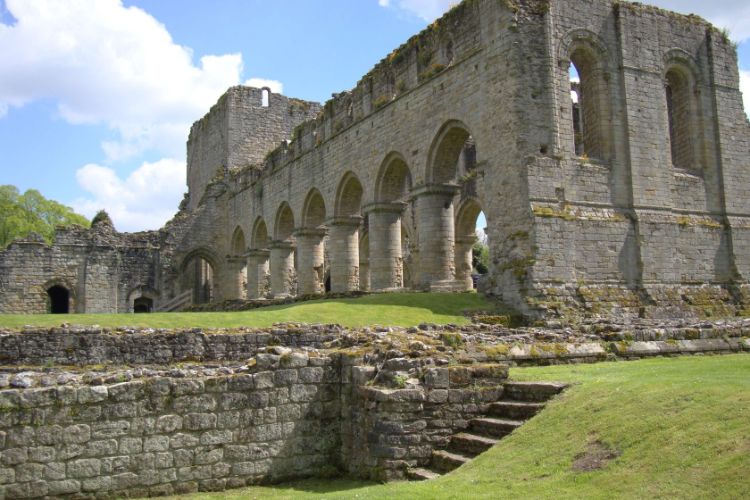
Buildwas Abbey
TelfordRuins of a Cistercian abbey, including its unusually unaltered 12th-century church, vaulted and tile-floored chapter house, and crypt chapel, in a wooded Severn-side setting.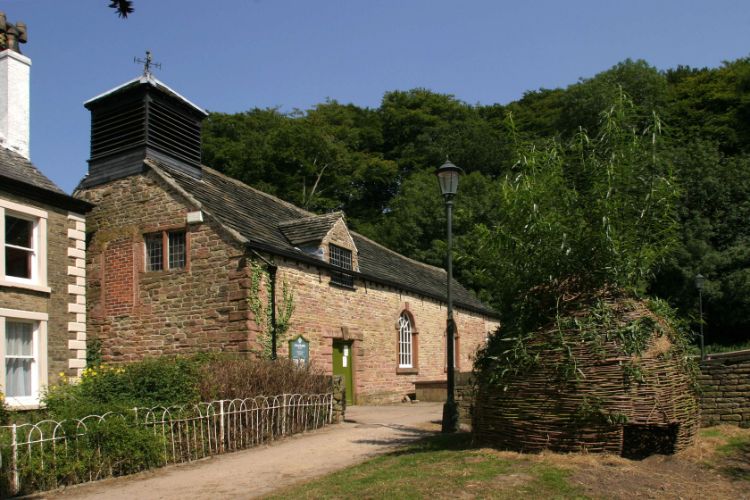
Chadkirk Chapel and Country Estate
RomileyChadkirk Chapel and Country Estate is a museum in Stockport. The museum features exhibits related to: social history.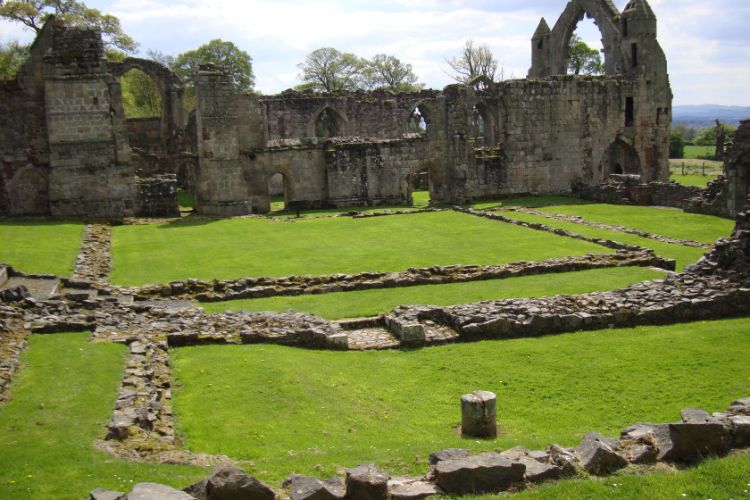
Haughmond Abbey
ShrewsburyThe extensive remains of an Augustinian abbey, including its abbots' quarters, refectory and cloister. The substantially surviving chapter house has a frontage richly bedecked with 12th and 14th century carving and statuary, and a timber roof of c. 1500. Pictorial interpretation boards guide the vis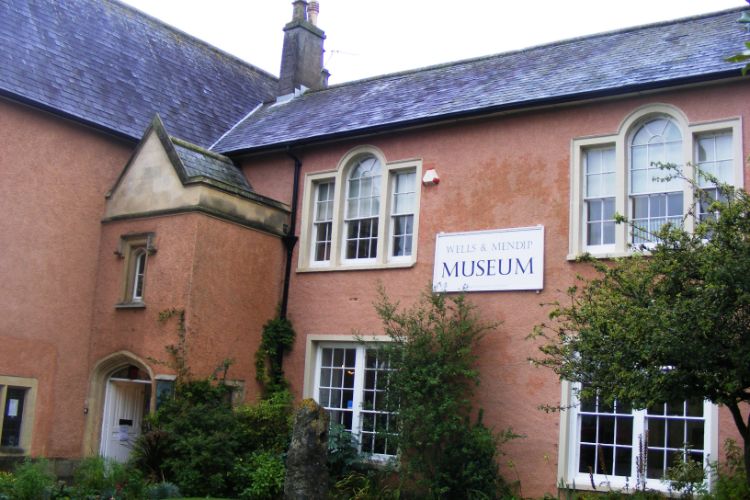
Wells and Mendip Museum
WellsThe museum is conveniently located next to Wells Cathedral, in the former Chancellors' House. The building itself has a rich history, with origins dating back to the 15th century, although most of its current structure is from the 17th and 18th centuries.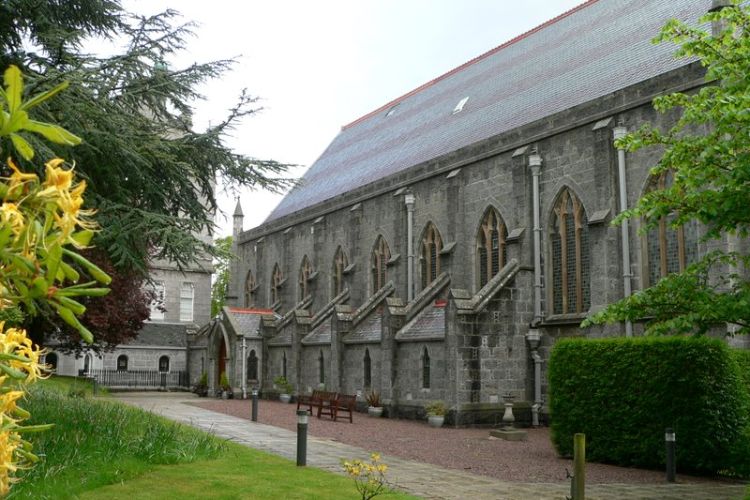
Blairs Museum
AberdeenThe Blairs Museum, located within the premises of the former Blairs College, showcases exhibits from the church's inventory. One of the notable exhibits includes a posthumous painting of the Scottish Queen Mary Stuart, which was hidden in a fireplace during the revolution and thus escaped destruction. This museum offers a unique opportunity to explore the rich history and heritage of the Roman Catholic Church in Scotland.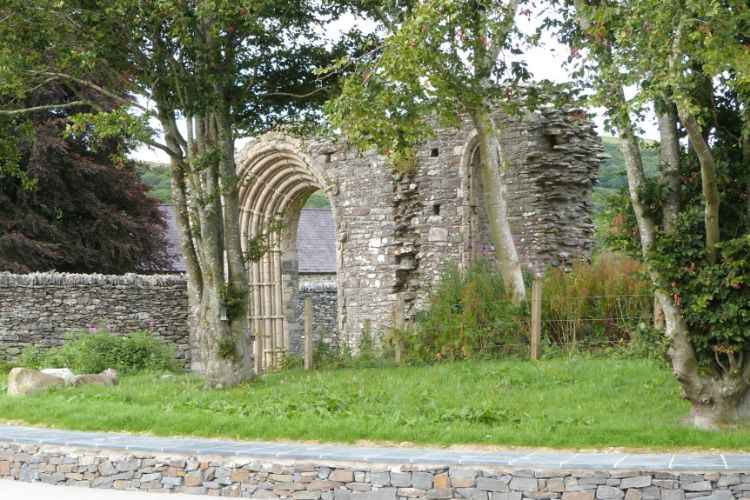
Strata Florida
PontrhydfendigaidStrata Florida Abbey, also known as Stratflur in Welsh, is a former Cistercian abbey located 27 km southeast of Aberystwyth, near Pontrhydfendigaid in Ceredigion, Wales. This historical site, once a significant religious institution, offers a glimpse into the past and is a point of interest for those interested in history and architecture.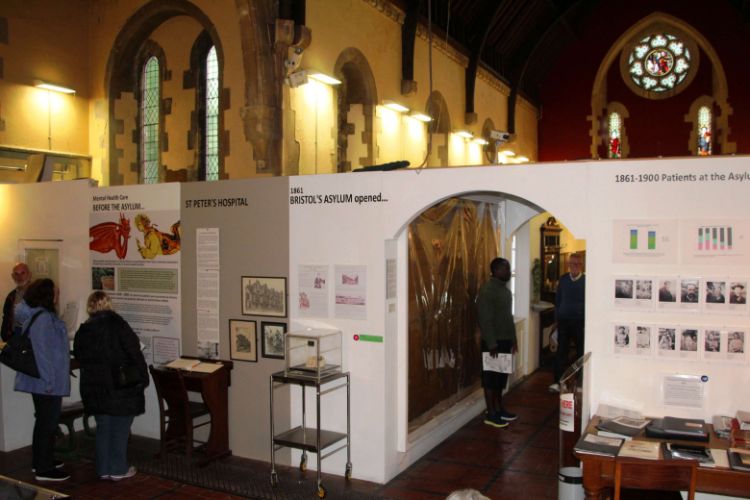
Glenside Hospital Museum
BristolGlenside Hospital Museum, in Bristol has a nationally significant, unique collection relating to health care, mental illness and learning difficulties. Based in the 1881 asylum church built for patients of the Victorian hospital. It provides a unique opportunity for visitors to explore the subject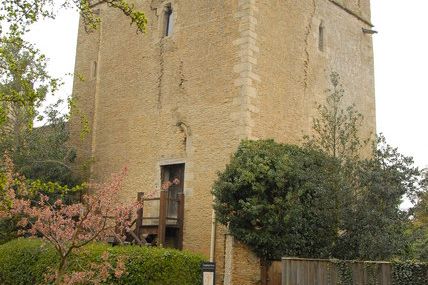
Longthorpe Tower
PeterboroughLongthorpe Tower was built around AD 1300. It is a very well preserved example of a solar tower, containing the private apartments of the owner of the fortified house. It boasts one of the most complete and important sets of 14th century domestic wall paintings in northern Europe. This varied ‘spiri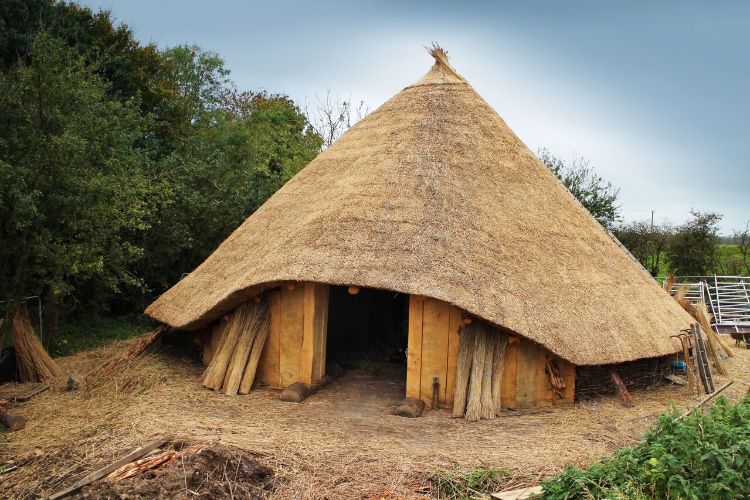
Whithorn Trust Museum
WhithornWhithorn Trust comprises a visitor centre, museum of Early mediaeval stones and the ruins of Whithorn Priory, an excavation site and a full-scale replica Iron Age roundhouse. The museum features exhibits related to the development of early Scotland and the arrival of Christianity.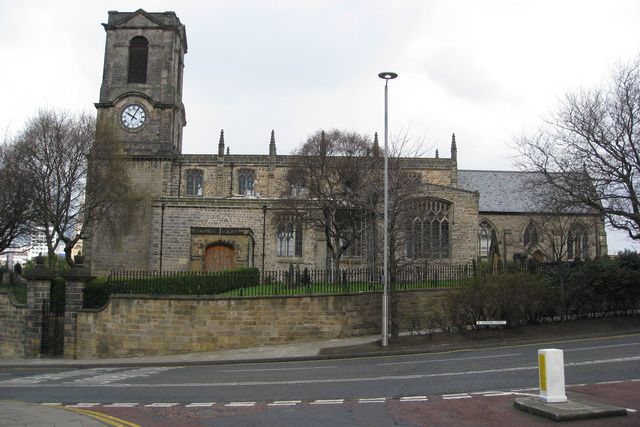
St. Mary's Heritage Centre
GatesheadSt. Mary's Church, which sits high above the River Tyne close to The Sage Gateshead, reopened on the 16th December 2008 following a £1.2m transformation, funded by Gateshead Council, the European Regional Development fund and the heritage lottery fund, into Tyneside's newest visitor attraction. The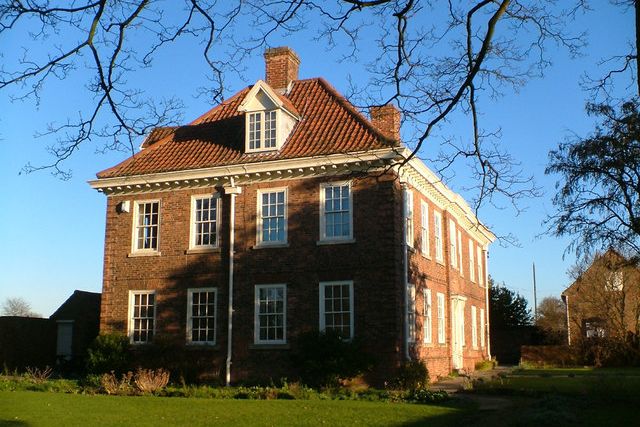
Epworth Old Rectory
EpworthThe Old Rectory in Epworth, Lincolnshire is a historic Queen Anne-style building that was rebuilt in 1709. It has been meticulously restored and is currently owned by the Methodist Church of Great Britain, who maintain it as a museum. This offers visitors a unique opportunity to explore a significant piece of British history.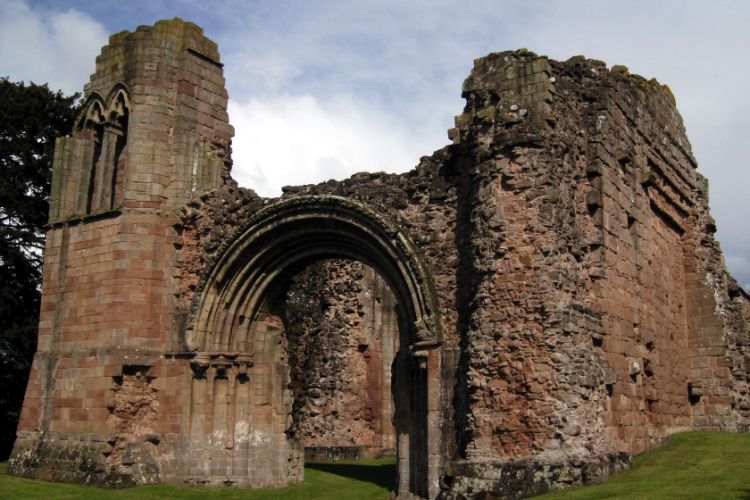
Lilleshall Abbey
TelfordExtensive ruins of an Augustinian abbey, later a Civil War stronghold, in a deeply rural setting. Much of the church survives, unusually viewable from gallery level, along with the lavishly sculpted processional door and other cloister buildings.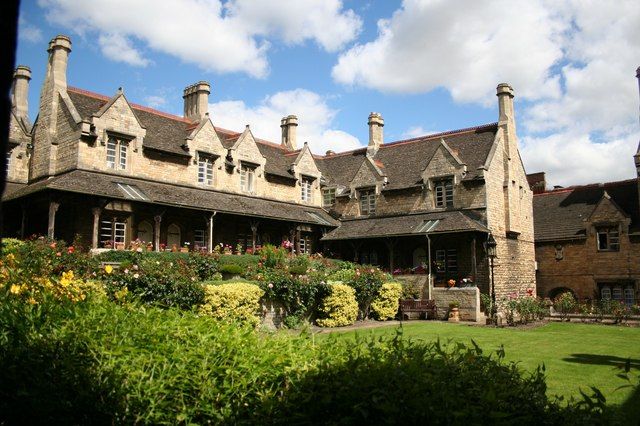
Browne's Hospital
StamfordThe Stamford Museum, located in Stamford, Lincolnshire, in Great Britain, was a significant cultural institution in the region. It was managed by the museum services of Lincolnshire County Council from 1980 until its closure in 2011. The museum was housed in a Victorian building on Broad Street, which was originally built in 1895 as a technical school.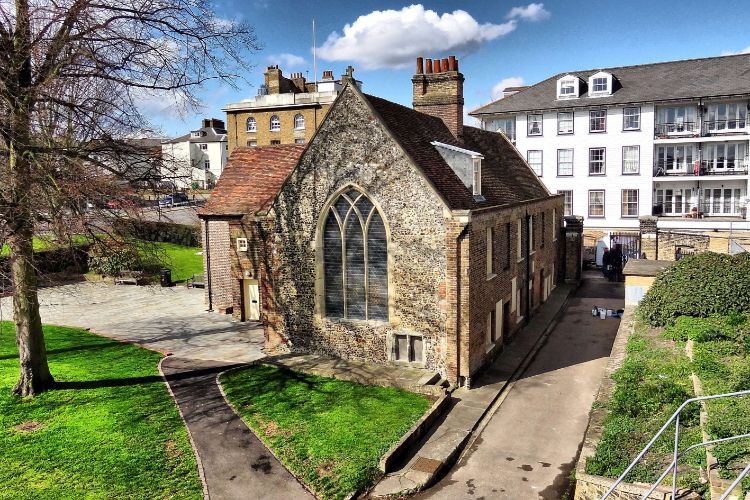
Chantry Heritage Centre
GravesendMilton Chantry, located in Gravesend, Kent, England, is a former chantry chapel that now serves as the Chantry Heritage Centre. This centre showcases a variety of exhibits that provide insights into the history and culture of Gravesend, Northfleet, and the surrounding villages. Visitors to the centre can expect to learn about the local area through these informative displays.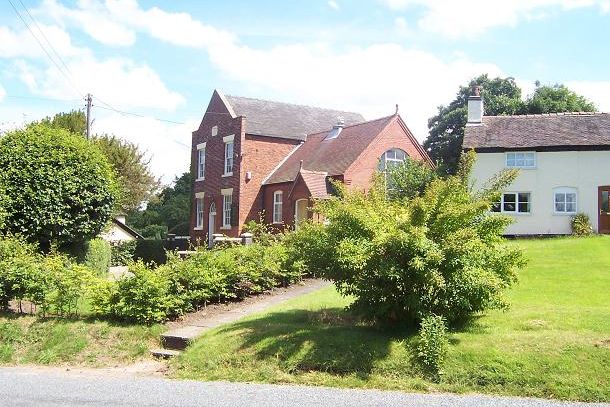
Englesea Brook Chapel and Museum
CreweThe Englesea Brook Chapel and Museum, situated in the village of Englesea-Brook in Cheshire, England, is a significant historical site. Constructed in 1828, it is one of the earliest chapels associated with the Primitive Methodist movement. This makes it a place of interest for those keen on exploring the history of Methodism in England.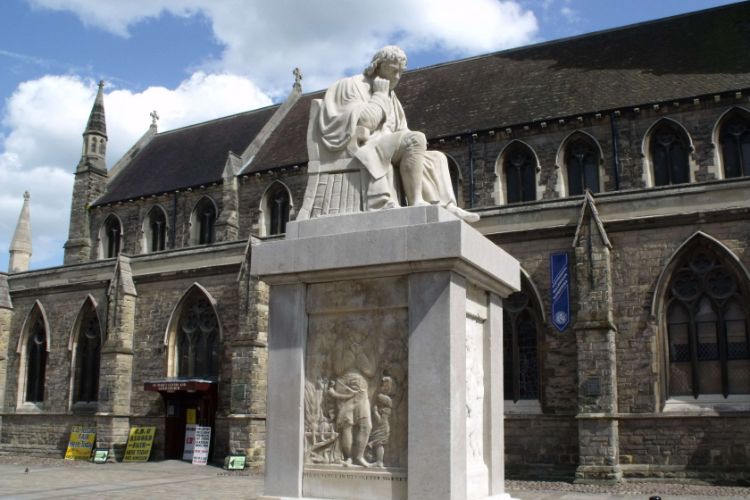
Lichfield Museum
LichfieldLichfield Museum, previously known as the Lichfield Heritage Centre, is a place dedicated to preserving and showcasing the history and heritage of the city of Lichfield. It provides a comprehensive insight into the city's past, making it an ideal destination for those interested in learning about Lichfield's rich history.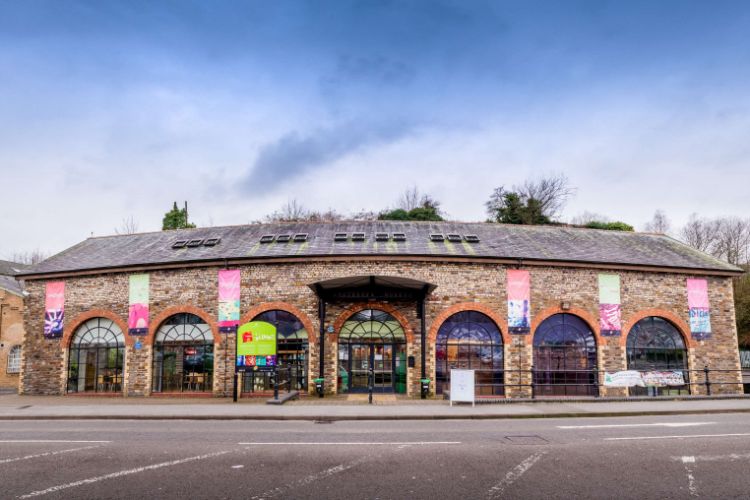
Cynon Valley Museum
AberdareCome along to the Cynon Valley Museum to discover the history of the people who worked and lived here. The museum also displays wall-mounted and 3D art in two temporary exhibition spaces, all produced by locally based artists. The Shop sells handmade homeware, art and gifts. Our cafe is open everyd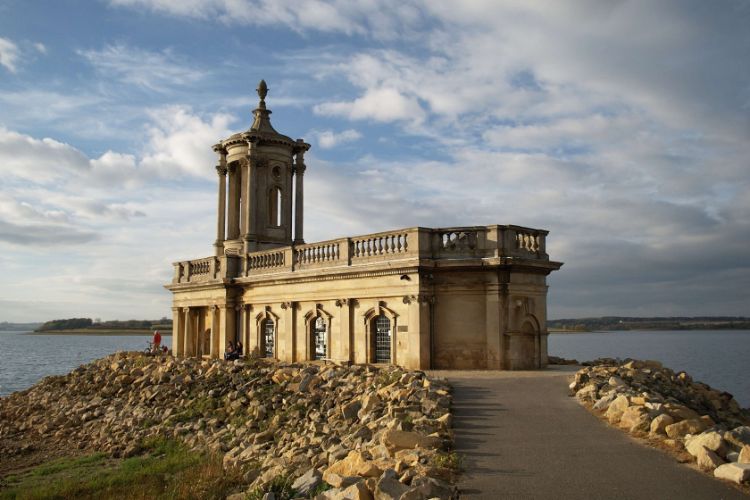
Normanton Church Museum
OakhamThis iconic church is Rutland's most famous landmark. It was saved from the water and is now open for guided tours that recount the history of this beautiful building and its surroundings and also provides a stunning location for civil weddings and classical concerts.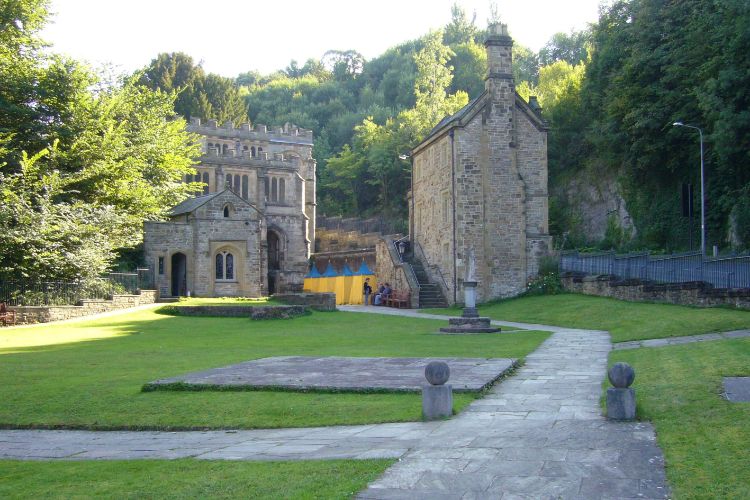
St Winefride's Well Museum
HolywellSt Winefride's Well, known as Ffynnon Wenffrewi in Welsh, is a significant historical site located in Holywell, Flintshire, Wales. It holds the distinction of being the oldest continuously visited pilgrimage site in Britain. The well is a Grade I listed building and a scheduled ancient monument, reflecting its historical and architectural importance.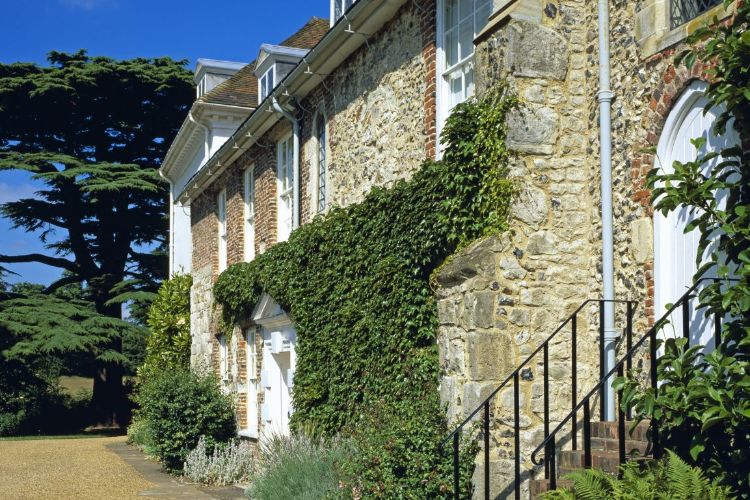
St John's Jerusalem
Sutton at HoneTranquil garden and 13th-century chapel. The large garden, moated by the River Darent, contains trees and herbaceous borders. The chapel was part of the former Commandery of the Knights Hospitallers of the Order of Saint John of Jerusalem, established here in 1199, of which the remainder was convert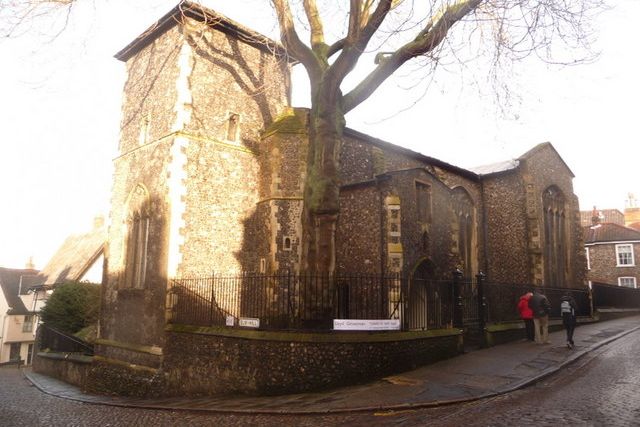
Hungate Medieval Art
NorwichHungate Medieval Art is a centre for the appreciation of medieval art. Hungate Medieval Art aims to promote Norfolk’s medieval heritage. In particular, the charity is concerned with the medieval art hidden in the county’s parish churches. Operating from the redundant church of St Peter Hungate, Hung- 89
Hailes Abbey
WinchcombeHailes Abbey, a former Cistercian abbey, is situated in the quaint village of Hailes, just two miles northeast of Winchcombe in Gloucestershire, England. This historical site offers a glimpse into the past, providing a unique opportunity to explore the remnants of a once thriving religious institution. - 90
Prittlewell Priory
Southend-on-SeaPrittlewell Priory is a significant historical site located in the Prittlewell area of Southend, Essex, England. The priory was established in the 12th century by monks from the Cluniac Priory of St Pancras in Lewes, East Sussex. This medieval priory offers a glimpse into the religious and architectural history of the region, making it a fascinating destination for those interested in history and architecture. - 91
Shaftesbury Abbey Museum and Garden
ShaftesburyShaftesbury Abbey, located in the English town of Shaftesbury, was established in the year 888 by Alfred the Great. The first abbess of this abbey was his daughter, Aethelgifu. This historical fact adds a significant layer of historical depth to the site, making it a fascinating destination for those interested in English history and the role of women in religious institutions. - 92
The Tolhouse
Great YarmouthThe Tolhouse, located in Great Yarmouth, Norfolk, England, is a museum housed in a building that dates back to the 12th century. This historic structure has served various purposes over the centuries, including a jail and a courthouse, before being transformed into a museum. As one of the oldest civic buildings in Great Yarmouth, it offers a unique glimpse into the town's rich history. - 93
Anker's House Museum
Chester-le-StreetThe parish church of St Mary and St Cuthbert in Chester-le-Street, County Durham, England, is a site of significant historical and religious importance. The site has been used for worship for over 1100 years, and parts of the current building are over 950 years old. This makes it a fascinating destination for those interested in history, architecture, and religion. - 94
Old Soar Manor
Borough GreenOld Soar Manor is a property of English Heritage, which is owned and maintained by the National Trust. This means that the property is well-preserved and managed, ensuring a quality visit for tourists. The National Trust is known for its dedication to preserving and showcasing the UK's historical and natural heritage, so visitors can expect a well-maintained site with a rich history. - 95
St Seraphim’s Icon and Railway Heritage Museum
Little WalsinghamSt Seraphim’s Icon and Railway Heritage Museum incorporates St Seraphim's Chapel, which was founded in 1967 for the Orthodox community. It was converted in a former railway station, which opened in 1857. The museum captures the heritage of the building, with information about its iconography, railwa - 96
Champ's Chapel Museum
East HendredThe Champs Chapel Museum of East Hendred is a unique local village museum. It is housed in the former Chapel of Jesus of Bethlehem, which was built in 1453 by Carthusian monks. This historical building adds a layer of historical significance to the museum, making it a fascinating place to visit for those interested in history and architecture. - 97
Bampton Heritage and Visitor Centre
BamptonBampton Heritage and Visitor Centre. We opened in September, 2013 and are located in St. Michaels Church in the centre of Bampton. We have a museum / display covering local history. We have a number of videos covering local history, the Exe Valley Railway Bampton Fair etc. There is an oral histor